50 essential civil rights speeches
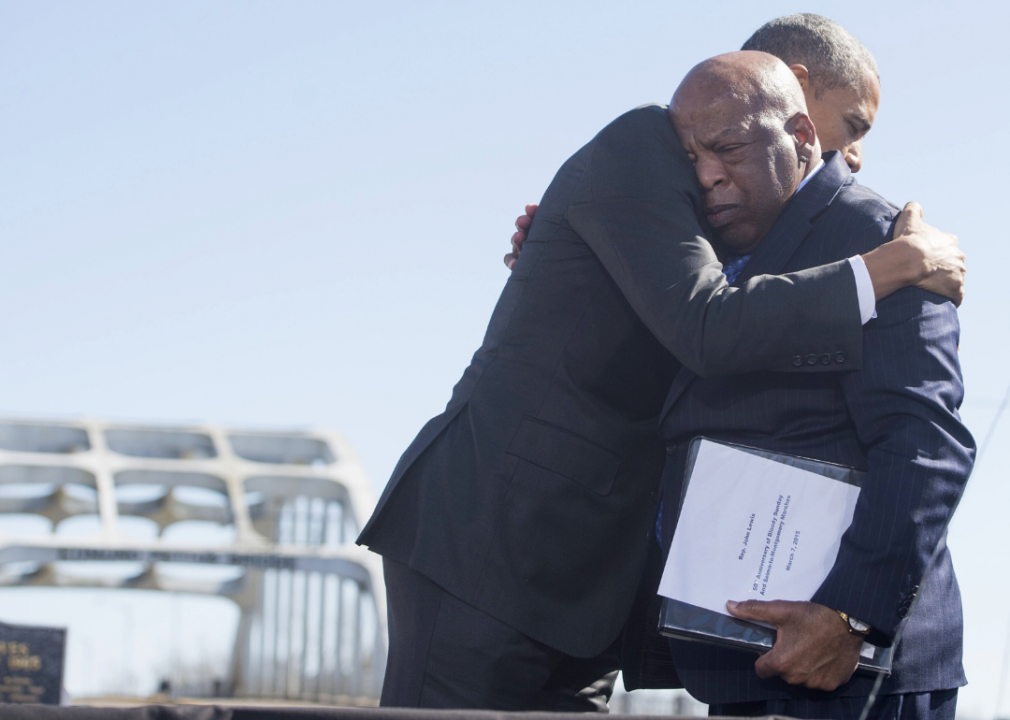
Saul Loeb/AFP // Getty Images
50 essential civil rights speeches
Activists, athletes, actors, and preachers with sometimes-fiery presentation skills are just a few of the people who’ve communicated the message of civil rights to the masses.
When many people think of civil rights, the path to equality for the Black community comes to mind, but oration is equally as instrumental to civil rights movements too, especially those striving to secure equality for women, those who are older, and members of the LBGTQ+ community.
Stacker compiled a list of 50 essential civil rights speeches using resources including BlackPast, TED, American RadioWorks, the Obama Foundation, and various other media and educational sources.
Almost everyone knows the names and the works of Martin Luther King Jr., Malcolm X, and Barack Obama. But did you know one presenter, in particular, centered intersectionality in her speech to include a telling test that illustrated how visibility for some can be almost nonexistent? Even another key player in the civil rights movement of the ’60s was sometimes silenced because he was Black and gay.
Being incendiary was natural for some of these speakers, while others toed the line between creating change and avoiding offending more conservative elements of the movement. Some of these speeches date back five decades into the past, but several others were delivered following the groundbreaking events of 2020—from Black Lives Matter rallies to the 2020 March on Washington—which featured powerful orators, ranging from activists to professionals with doctorates to even a grade-school student.
Keep reading to discover 50 essential civil rights speeches.
You may also like: ‘I Have a Dream’ and the rest of the greatest speeches of the 20th century
![]()
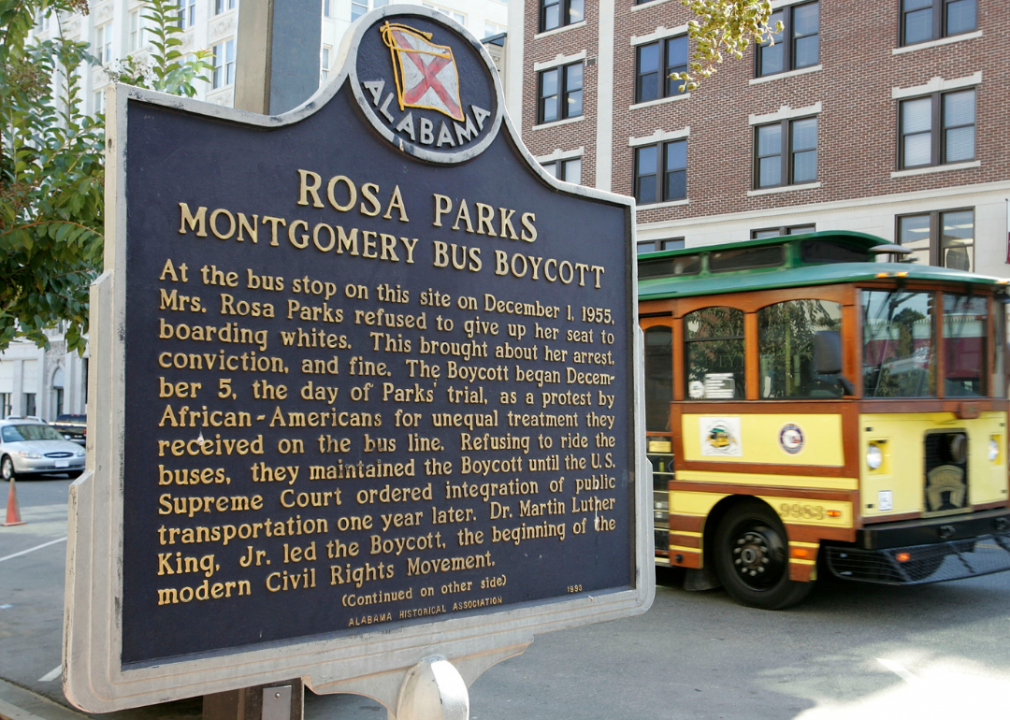
Justin Sullivan // Getty Images
Martin Luther King Jr.’s ‘The Montgomery Bus Boycott’
Four days after Rosa Parks refused to give up her seat in 1955, Martin Luther King Jr. addressed thousands of people who were part of the subsequent boycott of the bus system in Montgomery, Alabama. He talked about the longtime intimidation of Black bus riders, and the importance of continuing the protest.
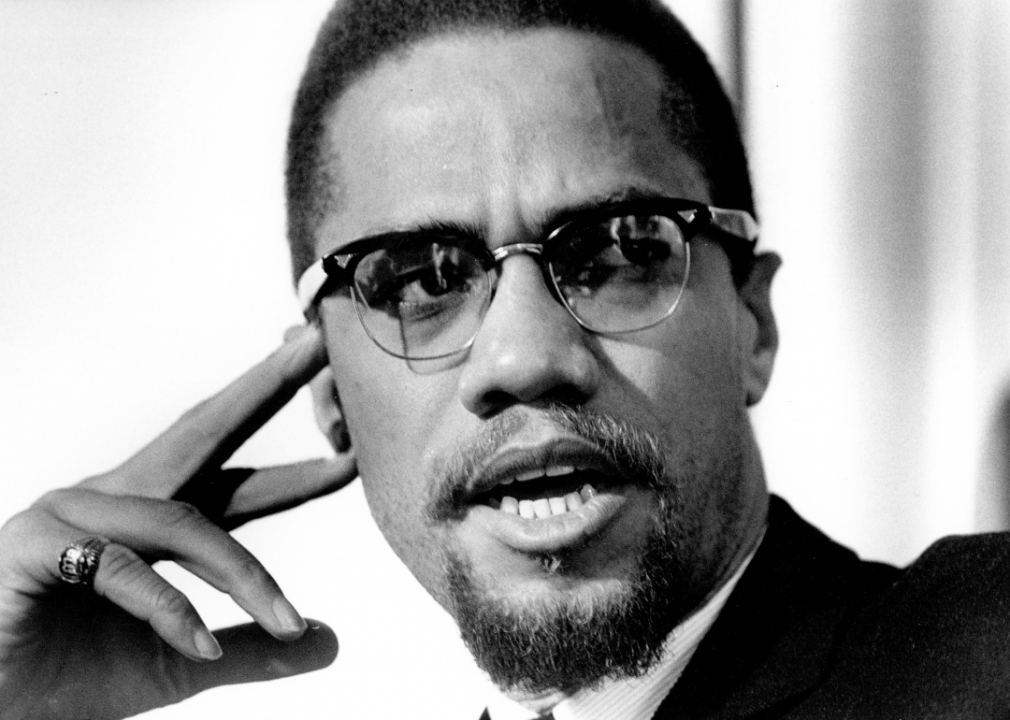
Michael Ochs Archives // Getty Images
Malcolm X’s ‘White Liberals and Conservatives’
Malcolm X talked in 1963 about the power of the vote to change the race problem, noting that only 3 million “Negro integration-seekers” in the “Black bourgeoisie” vote, but 8 million don’t. He proposed that both white liberals and conservatives use civil rights “in this crooked game of power politics” to garner power.
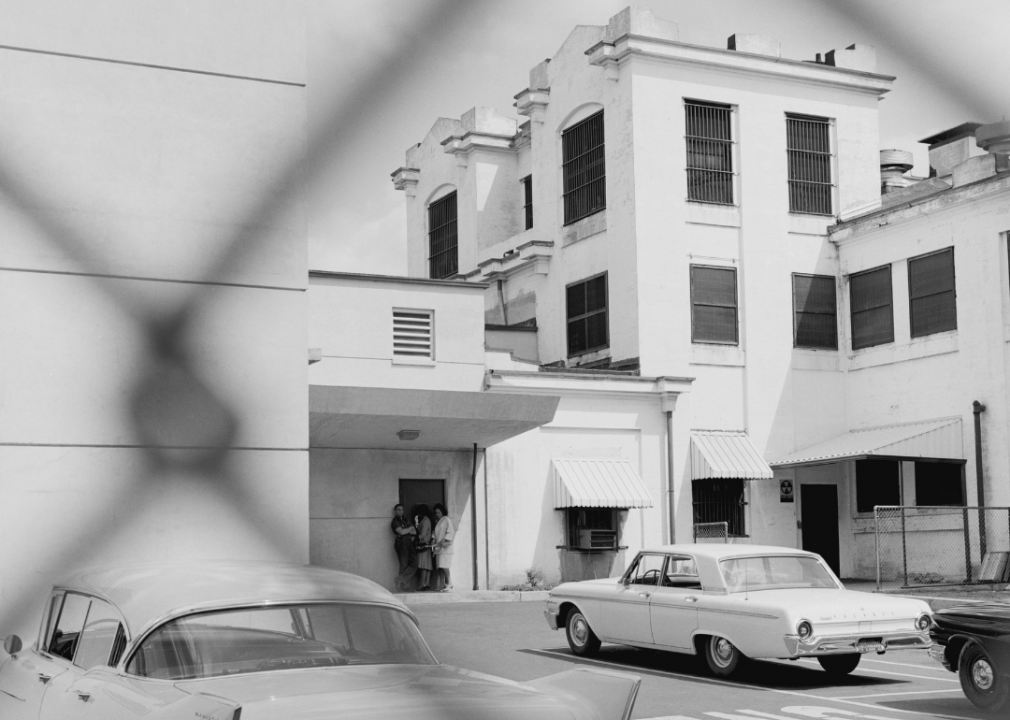
Michael Ochs Archives // Getty Images
Martin Luther King Jr.’s ‘Letter from Birmingham Jail’
The civil rights leader penned this speech in 1963 while jailed for continuing to protest the mistreatment of Black people. Martin Luther King Jr. talked about the interconnectedness of humanity, reminding us that “injustice anywhere is a threat to justice everywhere—we are caught in an inescapable network of mutuality, tied in a single garment of destiny. Whatever affects one directly affects all indirectly.”
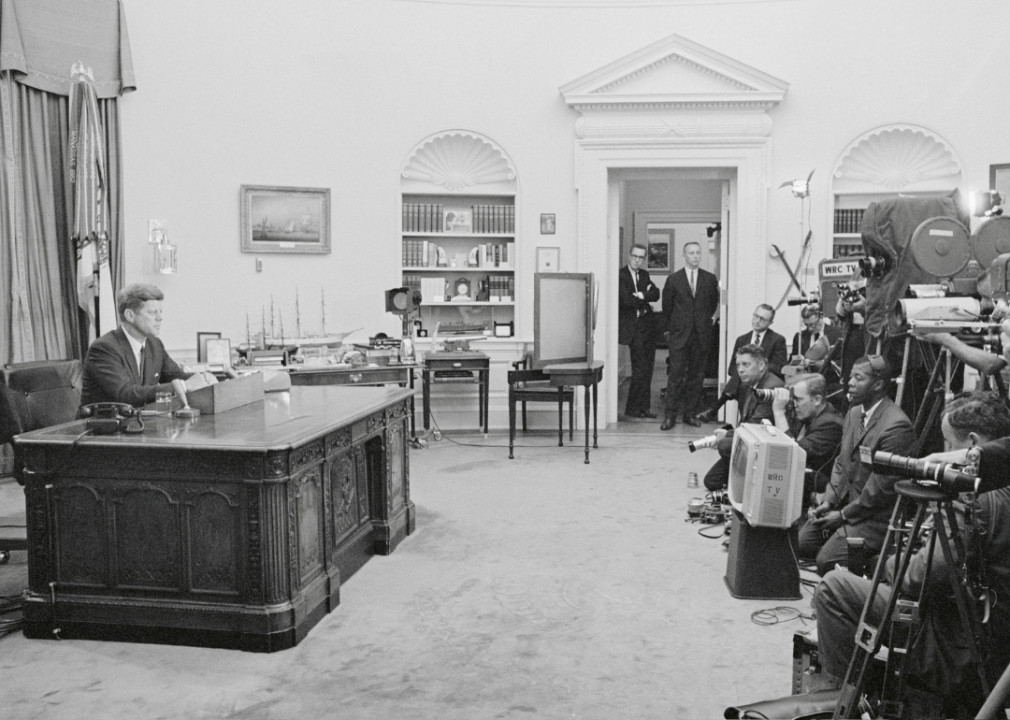
Bettman // Getty Images
John F. Kennedy’s 1963 address on civil rights
After National Guard assistance was required in 1963 to allow two Black students onto the University of Alabama campus, President John F. Kennedy reminded the nation that Americans of any color should be able to attend public schools, receive equal service, register to vote, and “enjoy the privileges of being American,” framing those rights as a moral issue. The stats he quoted to prove that this was not the case have changed over time, but many show that equality has not yet been achieved.
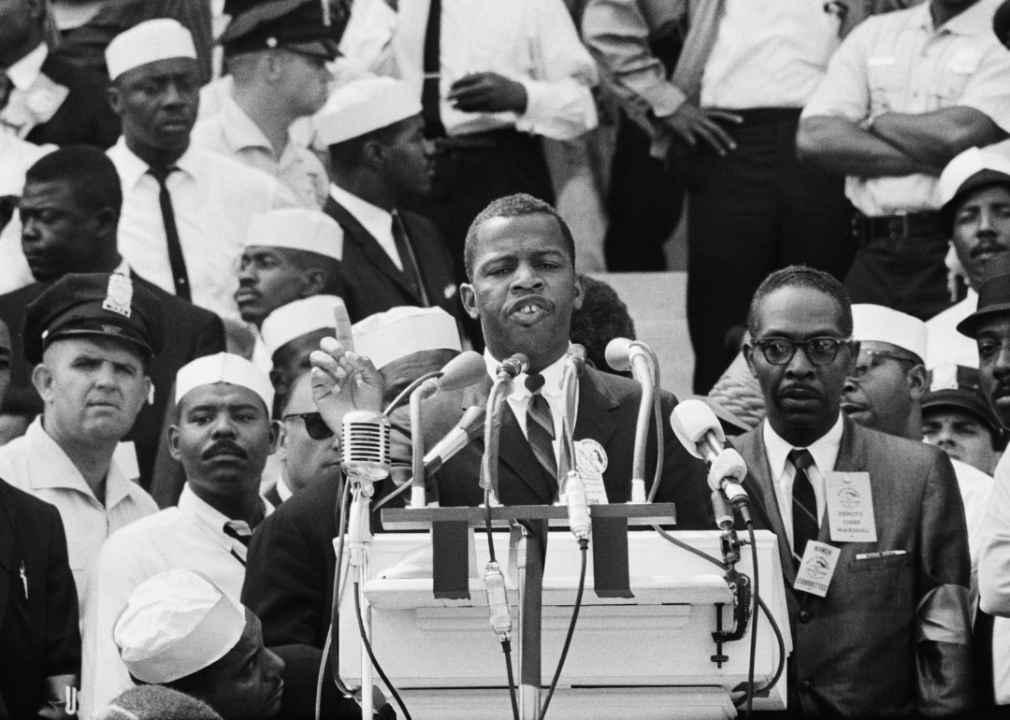
Bettman // Getty Images
John Lewis’ 1963 March on Washington speech
Before representing Georgia in Congress, John Lewis was chairman of the Student Nonviolent Coordinating Committee (SNCC), organizing with other civil rights leaders including Martin Luther King Jr. Lewis drafted his “March on Washington” speech in response to the Civil Rights Bill of 1963, stating that “we cannot be patient” for jobs and freedom and that “we are tired. We are tired of being beaten by policemen. We are tired of seeing our people locked up in jail over and over again.”
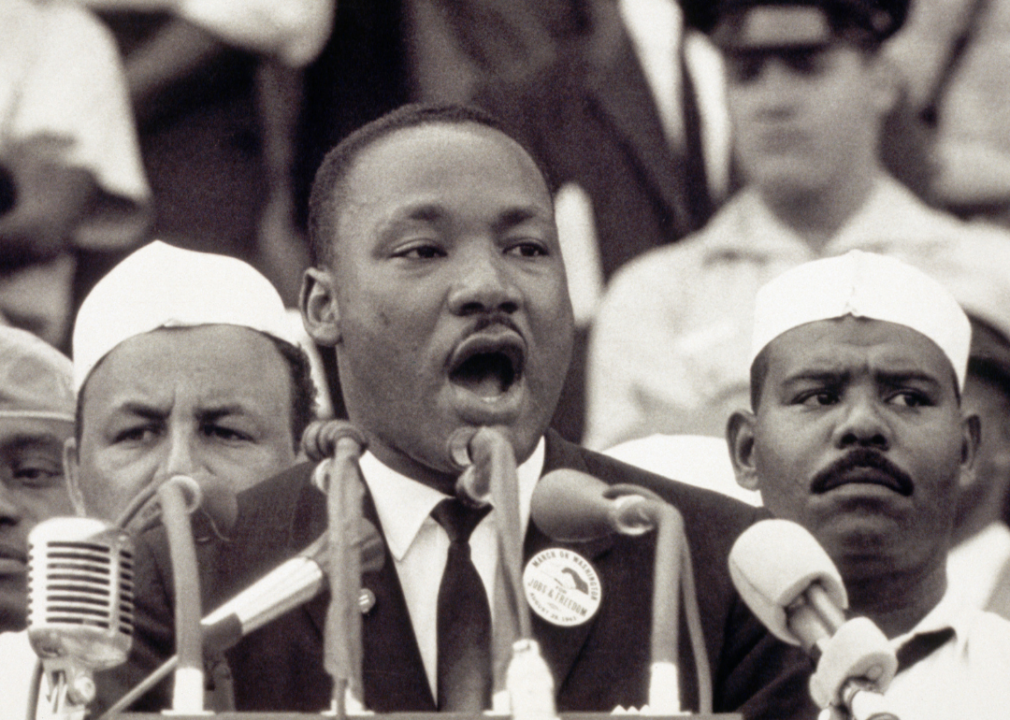
Bettman // Getty Images
Martin Luther King Jr.’s ‘I Have a Dream’
The civil rights icon called for an end to racism in front of more than 250,000 people in 1963. Martin Luther King Jr. talked about the lack of progress at that time, but almost 60 years later, the police brutality decried in this speech still exists, visible in the deaths of unarmed Black citizens and the protests that followed—perhaps most demonstratively were the Black Lives Matter protests that ensued following the killings of George Floyd, Ahmaud Arbery, and Breonna Taylor in 2020.
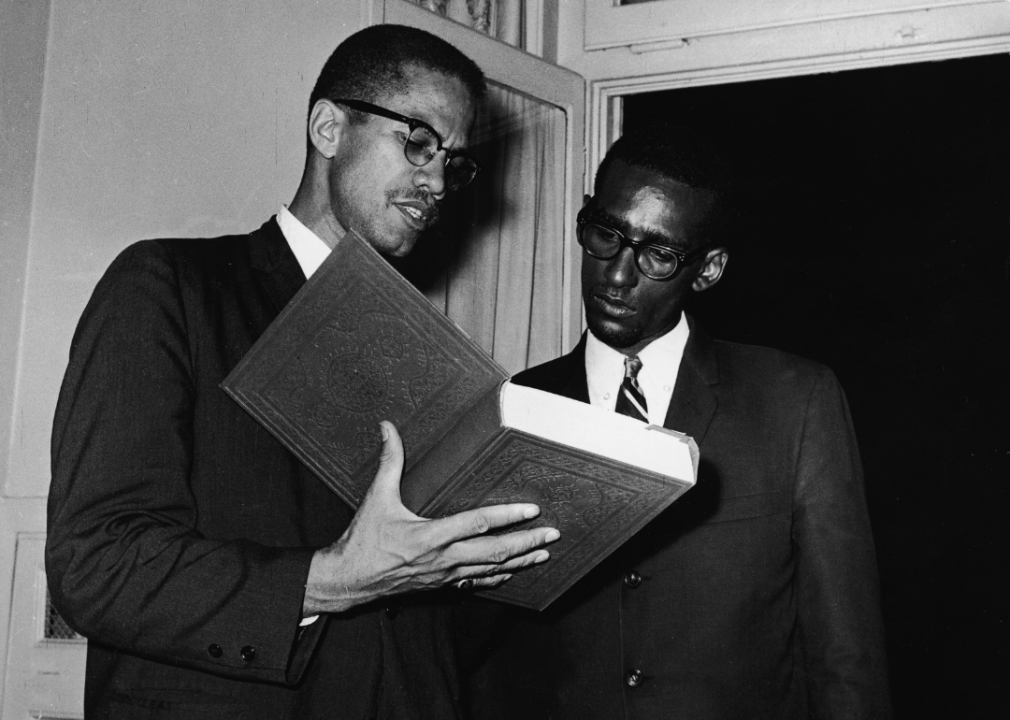
Pictorial Parade
Malcolm X’s ‘By Any Means Necessary’
The Nation of Islam activist spoke in 1964 about the creation of a Black nationalist party based on the successes of African brothers in gaining “more independence, more recognition, more respect as human beings.” His new Organization of African Unity would hasten the “complete independence of people of African descent … by any means necessary,” starting in Harlem.
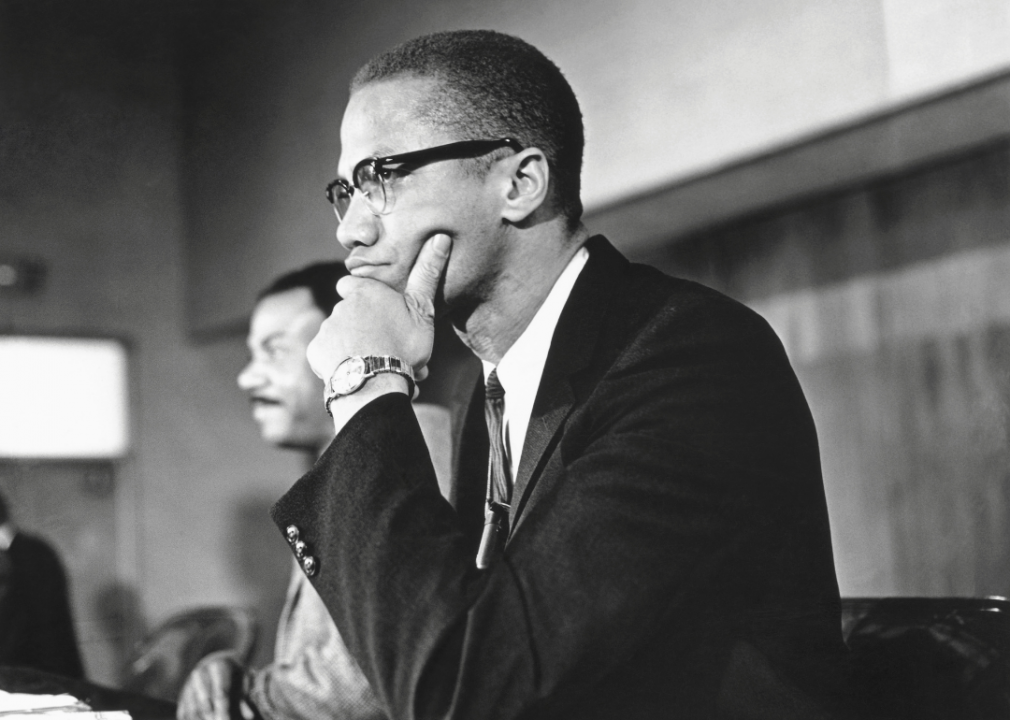
Michael Ochs Archives // Getty Images
Malcolm X’s ‘The Ballot or the Bullet’
Malcolm X continued his incendiary tone in 1964 with his “The Ballot or the Bullet” speech, in which he advocated for voting but doesn’t rule out more violent reactions. He noted that Black people are “fed up,” “disenchanted,” and “disillusioned,” creating an explosive environment.
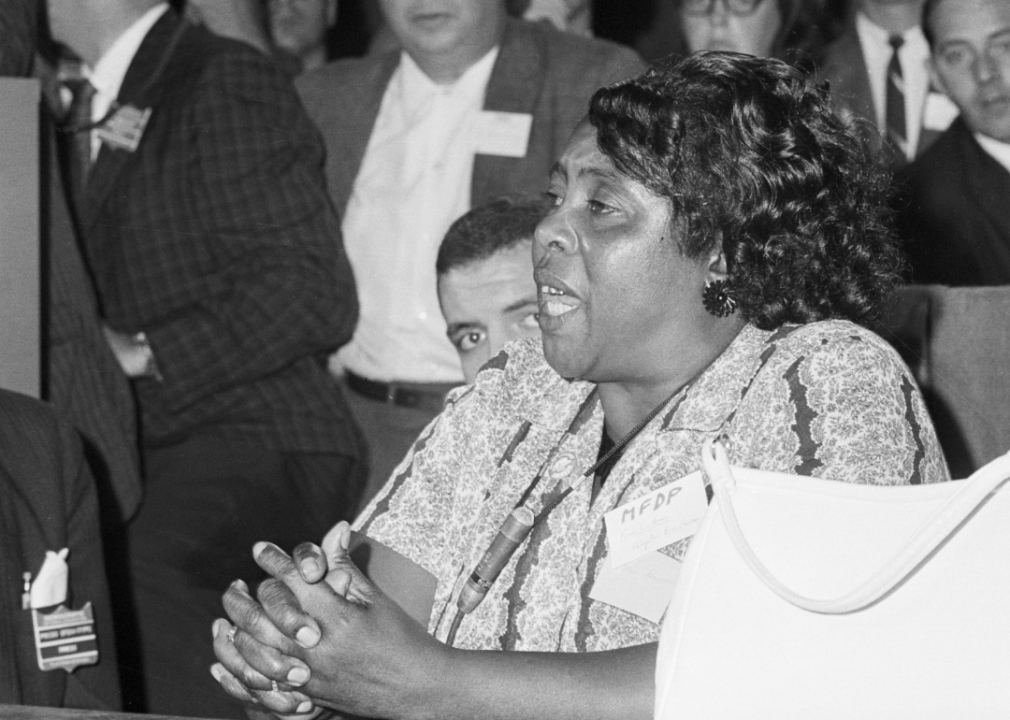
Bettman // Getty Images
Fannie Lou Hamer’s 1964 Democratic National Convention testimony
Former sharecropper and civil rights activist Fannie Lou Hamer talked in 1964 about traveling 26 miles to register to vote to become “first-class citizens,” being met by police, and ultimately being evicted for her efforts. In her speech, she asked, “Is this America, the land of the free and the home of the brave, where we have to sleep with our telephones off of the hook?”
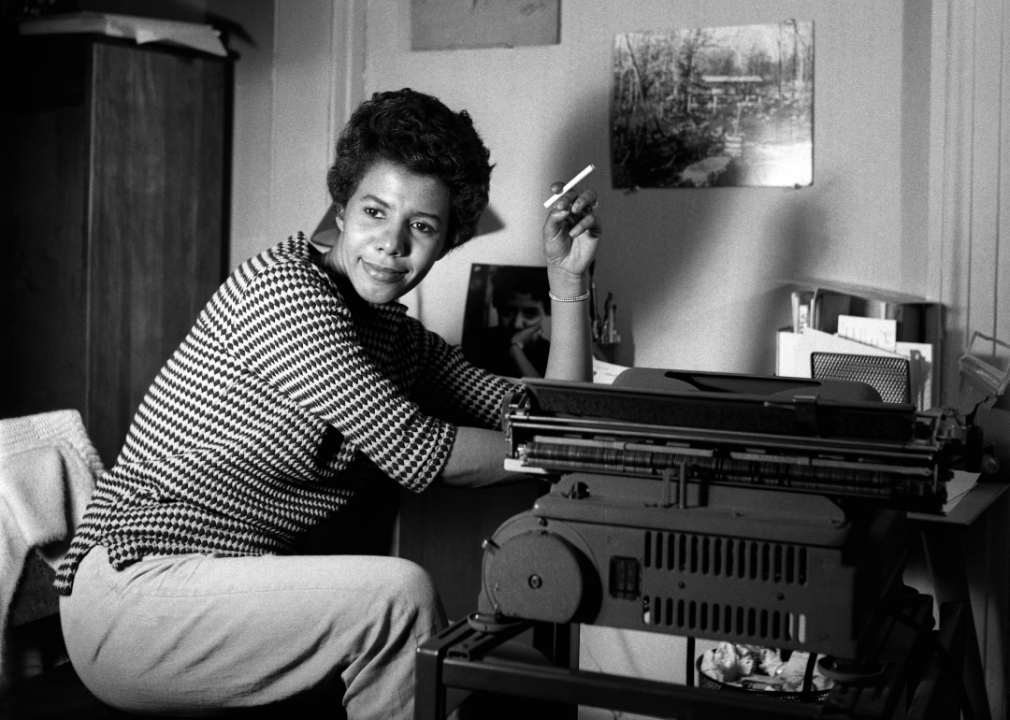
David Attie // Getty Images
Lorraine Hansberry’s ‘The Black Revolution and the White Backlash’
Not far off the mark from the commentary of Malcolm X, Lorraine Hansberry noted the “problem about white liberals,” who she asserted don’t understand the impatience of Black people who’ve been “kicked in the face so often.” Her 1964 speech also mentioned that the solution is to get them to “stop being a liberal and become an American radical.”
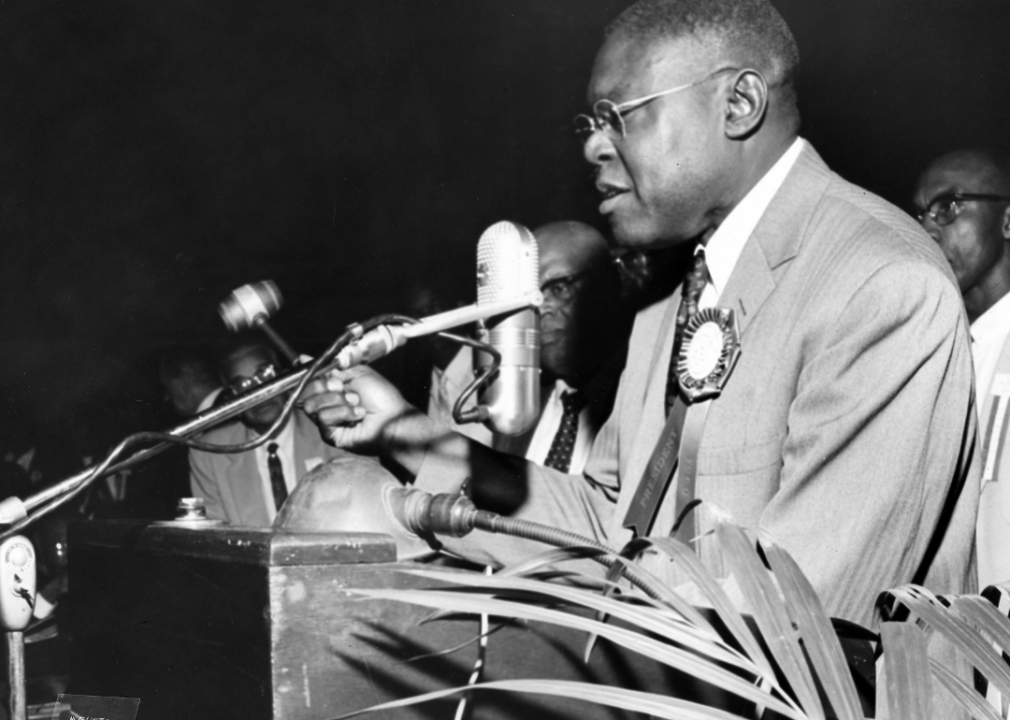
Afro Newspaper/Gado // Getty Images
Joseph Jackson’s ‘The Vote is the Only Effective Weapon in the Civil Rights Struggle’
Baptist preacher Joseph Jackson talked about the interconnectedness of civil rights and voting rights in this 1964 speech. The conservative leader implored the Black community to “fight their battles in the polling booth,” but opposed the direct action taken by many other civil rights leaders of the time.
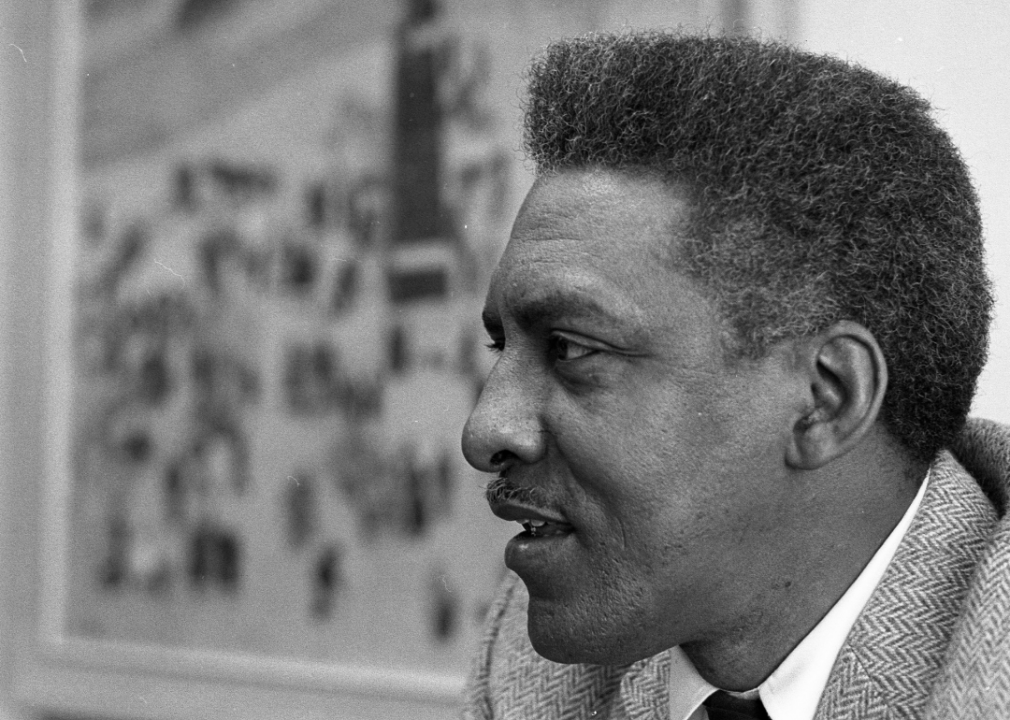
Robert Elfstrom/Villon Films // Getty Images
Bayard Rustin’s ‘Negro Revolution in 1965’
Bayard Rustin is relatively unknown in civil rights history, even though he was a major contributor to the movement, and acted as deputy director of the March on Washington. In this 1964 speech, he said that “the Negro is forcing the American people into a revolutionary situation” focused on better education, housing, and job opportunities. Some wanted to silence Rustin because he was Black and gay.
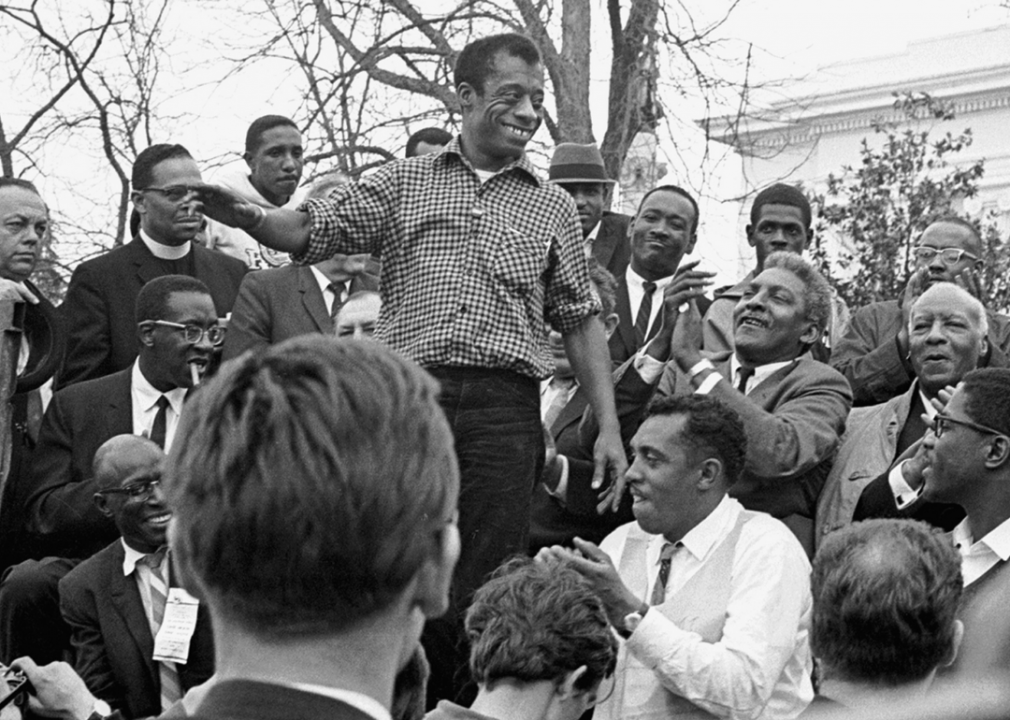
Robert Abbott Sengstacke // Getty Images
James Baldwin’s ‘Pin Drop’
Writer and activist James Baldwin talked in 1965 about how it can seem to Black people that they “belong where white people have put you.” He addressed how gentrification existed 55 years ago: “When someone says ‘Urban Renewal,’ that Negroes are simply going to be thrown out into the streets.” He also warned how those who are excluded will rise up: “The people who are denied participation in [the American Dream], by their very presence, will wreck it.”
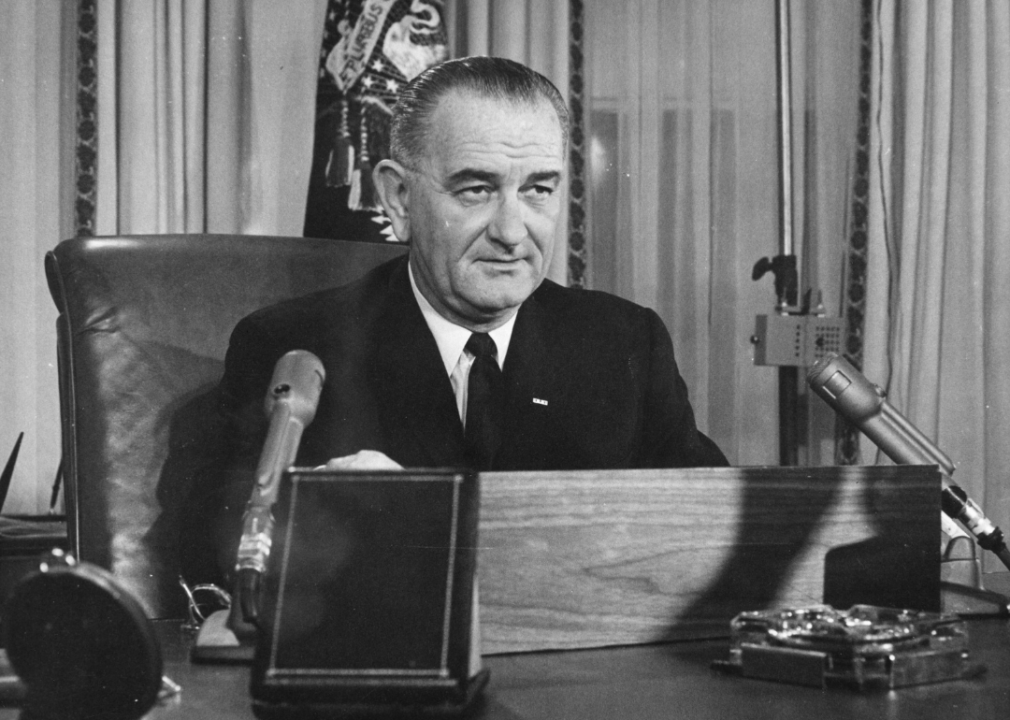
Hulton Archive // Getty Images
Lyndon B. Johnson’s ‘We Shall Overcome’
In 1965, following the atrocities of Bloody Sunday, President Lyndon B. Johnson called for voting and civil rights, stating, “Their cause must be our cause too.” Johnson had helped pass the Civil Rights Act the previous year, but he’d previously called a press conference to detract from testimony by Fannie Lou Hamer about voter suppression.
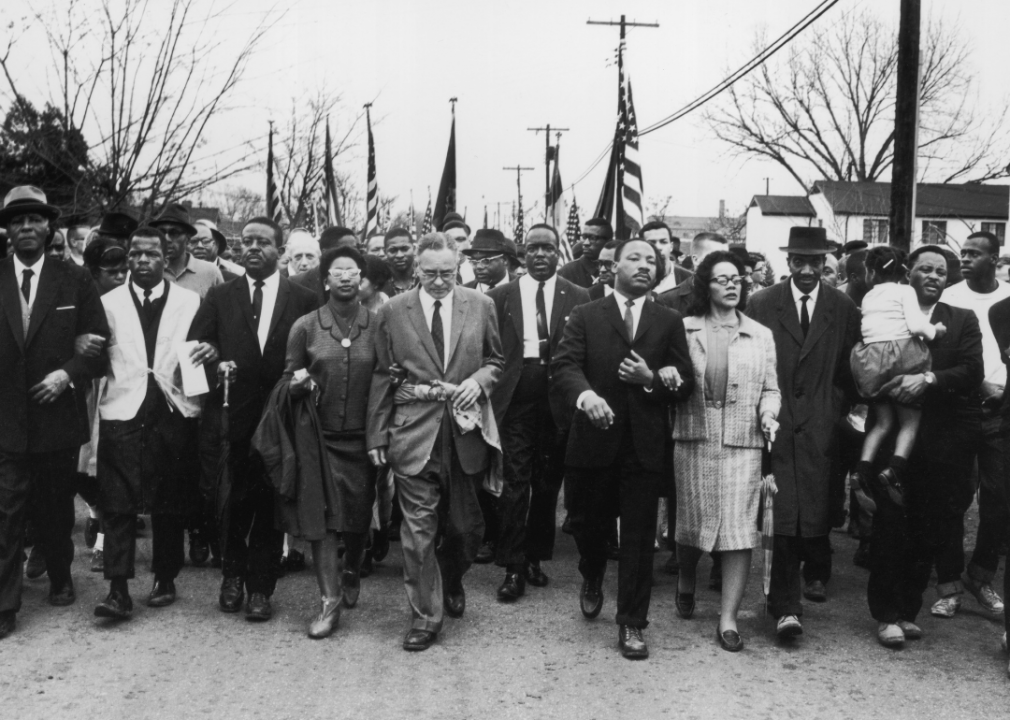
William Lovelace/Hulton Archive // Getty Images
Martin Luther King Jr.’s ‘Our God is Marching On’
After a four-day march from Selma to Montgomery in 1965, Martin Luther King Jr. spoke to the crowd, asking the question “How long will prejudice blind the visions of men?”—with the often-repeated answer, “Not long, because the arc of the moral universe is long, but it bends toward justice.” King hoped that racist brutality was coming to an end, but progress has continued to be spiked with beatings and deaths and new records in the number of hate groups.
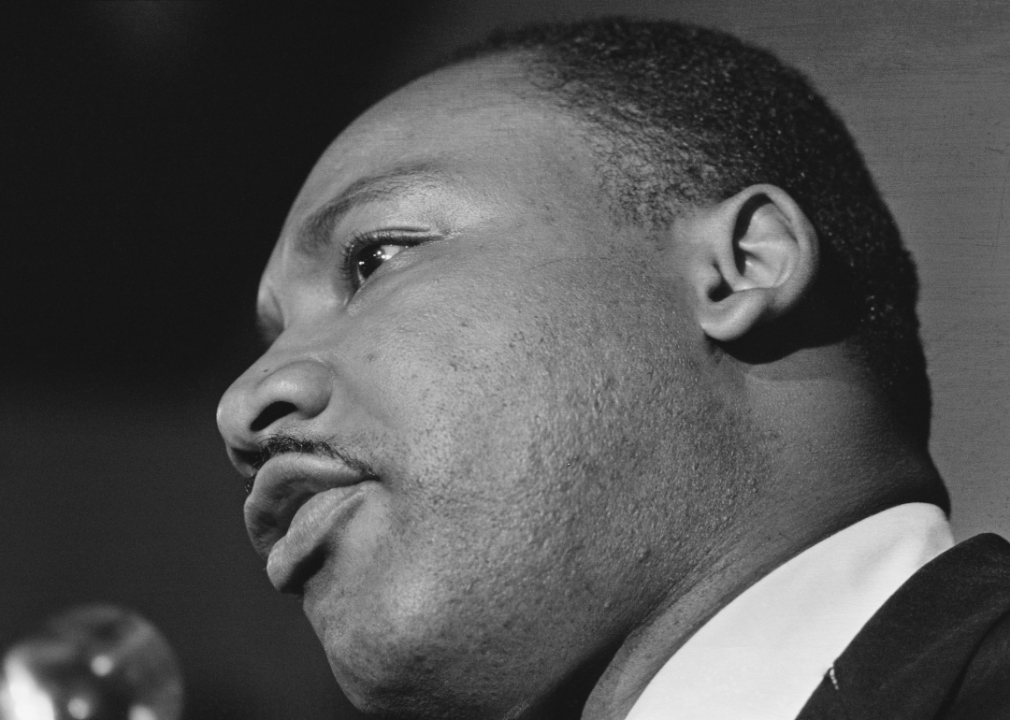
Michael Ochs Archives // Getty Images
Martin Luther King Jr.’s ‘The Three Evils of Society’
Martin Luther King Jr. talked about the “triple evils” of war, poverty, and racism at the 1967 National Conference on New Politics in Chicago. His thoughts on war talk about “guided missiles and misguided men,” while his insights on poverty and racism note that “capitalism was built on the exploitation and suffering of black slaves and continues to thrive on the exploitation of the poor both black and white, both here and abroad.”
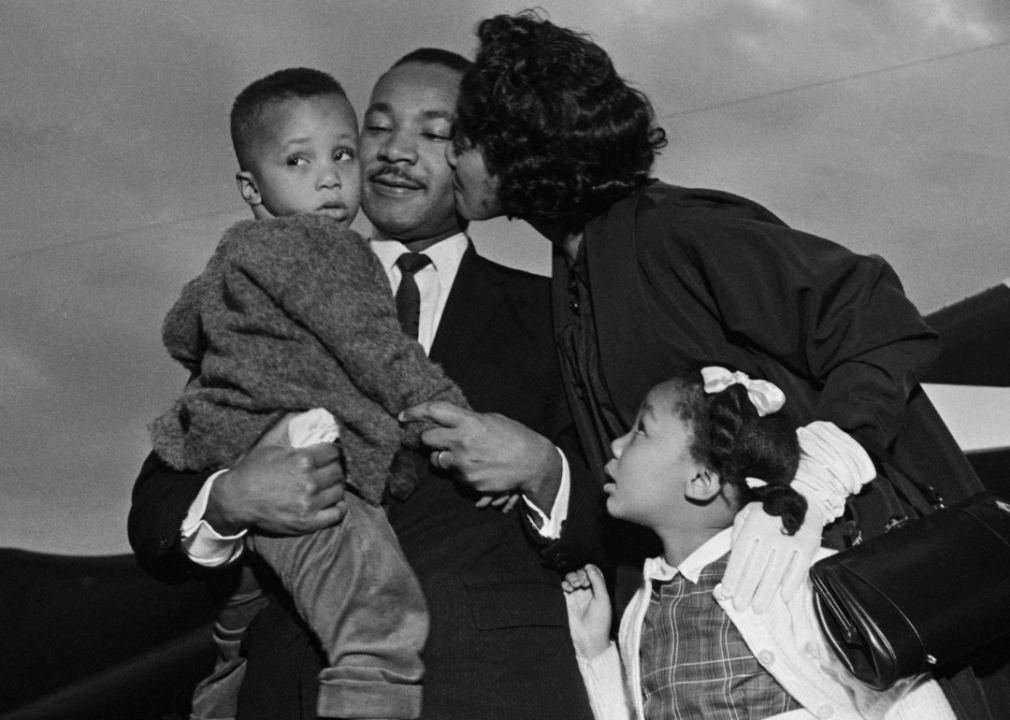
Bettman // Getty Images
Martin Luther King Jr.’s ‘The Other America’
Equality for all was another of Martin Luther King Jr.’s rallying cries. In this 1967 speech, he recognized that some people live on a “lonely island of poverty in the midst of a vast ocean of material prosperity.”
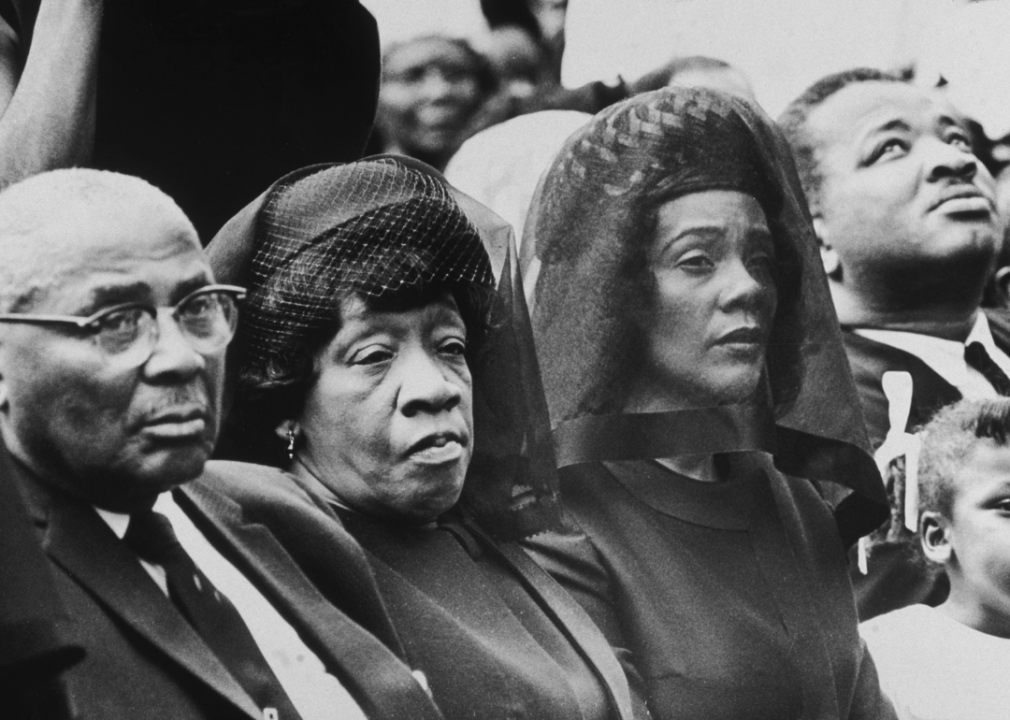
New York Times Co. // Getty Images
Martin Luther King Jr.’s ‘I’ve Been to the Mountaintop’
No collection of civil rights speeches would be complete without the hopeful presentation by Martin Luther King Jr. from the night before his assassination in 1968. Despite the roadblocks along the way, including the beatings and deaths of numerous people in the movement, the civil rights leader was still convinced that “we, as a people, will get to the promised land.”
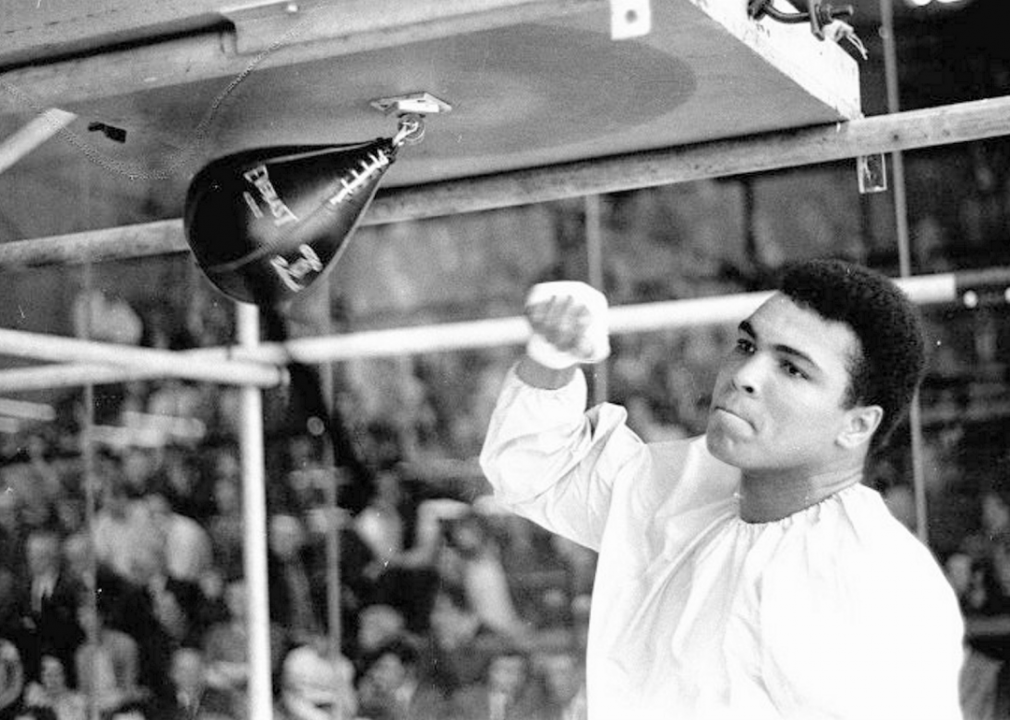
Independent News and Media // Getty Images
Muhammad Ali’s ‘Wake Up and Apologize’
In a 1972 conversation with an Irish journalist, Muhammad Ali launched into a poetic assessment of what it’s like to face police brutality as a Black man. The GOAT noted, “Better far from all I see, to die fighting to be free, what more fitting end could be … let me die by being Black, better far that I should go, standing here against the foe is the sweeter death to know.”
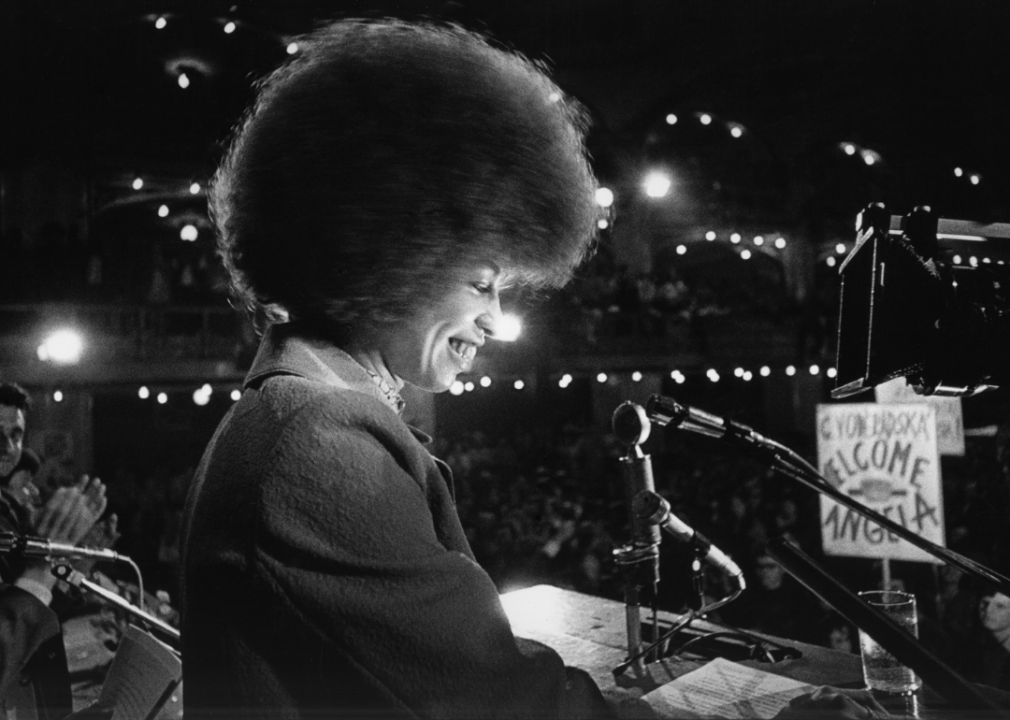
Miroslav Zajic/Corbis Historical // Getty Images
Angela Davis’ ‘The Gates to Freedom’
Socialist and activist Angela Davis faced sexism while championing criminal justice reform and civil rights for the Black community, even being imprisoned as a result. After her trial, she gave this speech in 1972, suggesting that society “redirect that wealth … and channel it into food for the hungry, and to clothes for the needy; into schools, hospitals, housing, and all the material things that are necessary.” The ideas parallel current calls for reform.
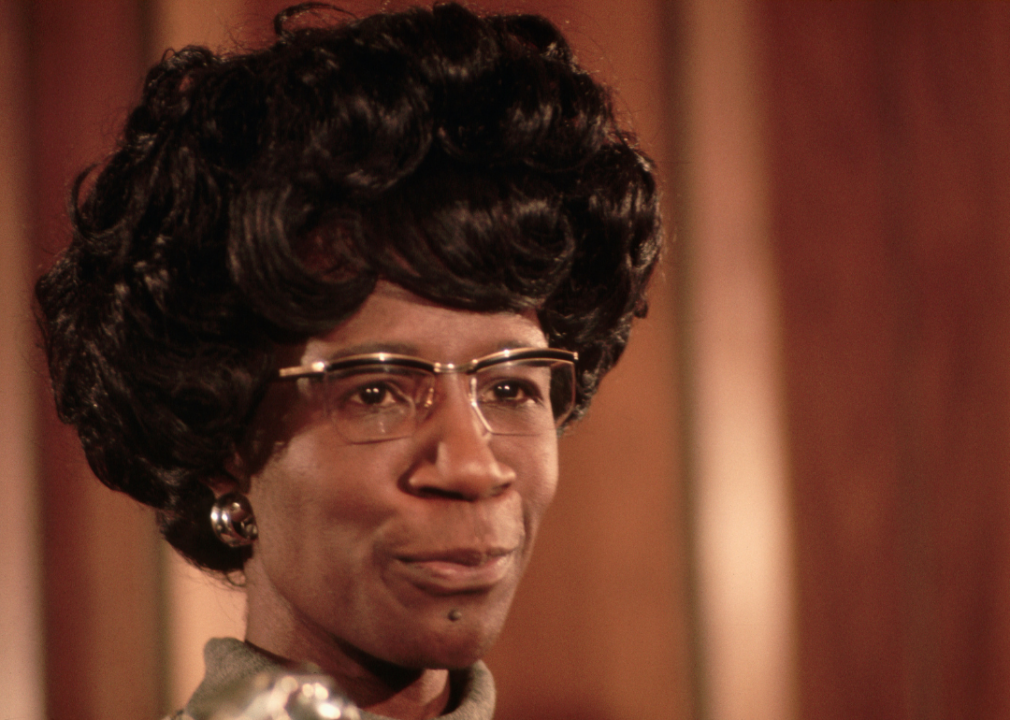
Leif Skoogfors/Corbis Historical // Getty Images
Shirley Chisholm’s ‘The Black Woman in Contemporary America’
The first Black woman elected to Congress urged all Americans in 1974 to “Forget traditions! Forget conventionalisms! Forget what the world will say whether you’re in your place or out of your place.” This mindset served her well when she put her name in the hat for president of the United States.
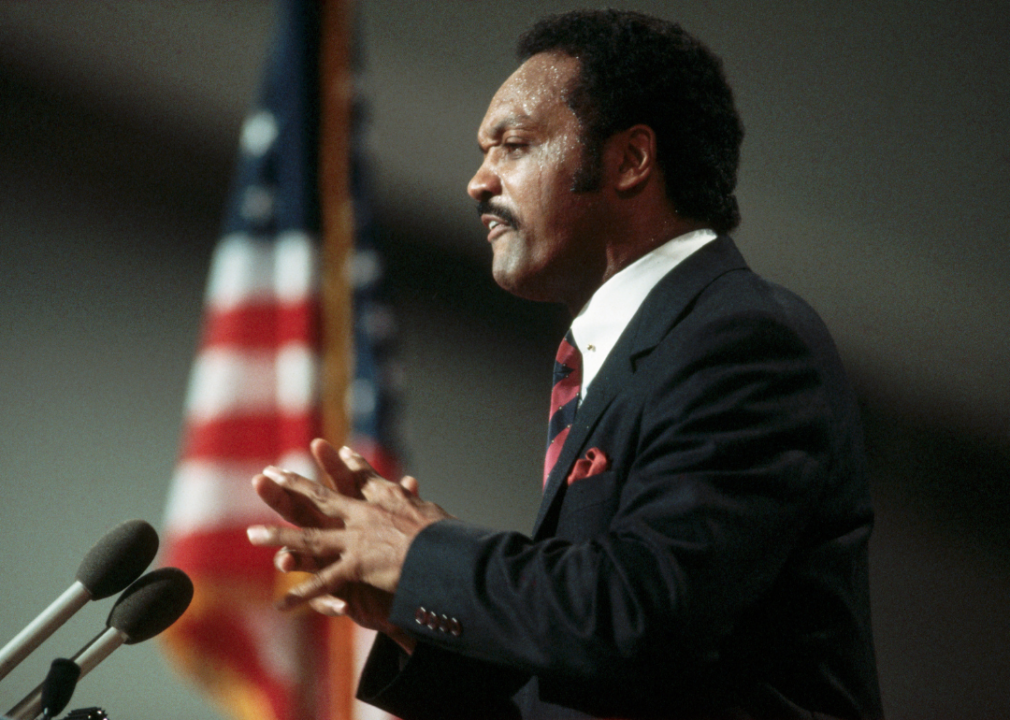
Wally McNamee/Corbis Historical // Getty Images
Jesse Jackson’s ‘Keep Hope Alive’
Two-time presidential candidate, activist, and organizer Jesse Jackson spoke to the Democratic National Convention in 1988 about finding common ground, decades before the divisiveness seen in recent years. “Progress will not come through boundless liberalism, nor static conservatism, but at the critical mass of mutual survival,” Jackson said.
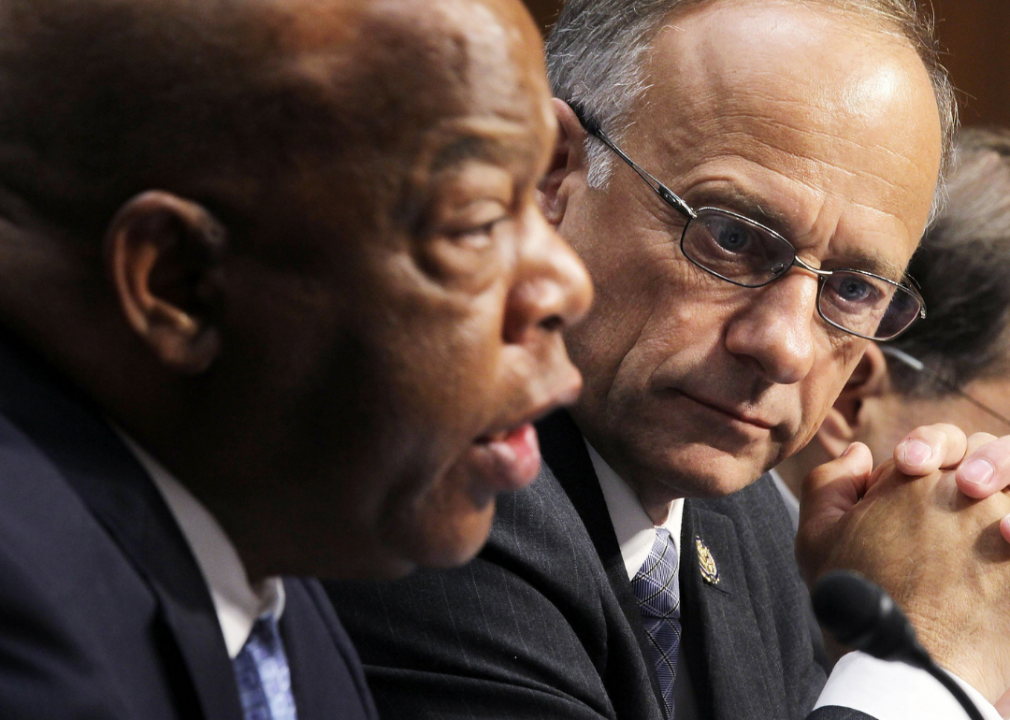
Alex Wong // Getty Images
John Lewis’ ‘You Cannot Tell People They Cannot Fall in Love’
The Georgia representative and civil rights organizer stepped up at the Defense of Marriage Act congressional debates in 1996 to tell the world, “You cannot tell people they cannot fall in love.” Lewis drew parallels between interracial and gay marriages in his reaction to the wording in the Act that defined marriage as a legal union between one man and one woman as husband and wife.
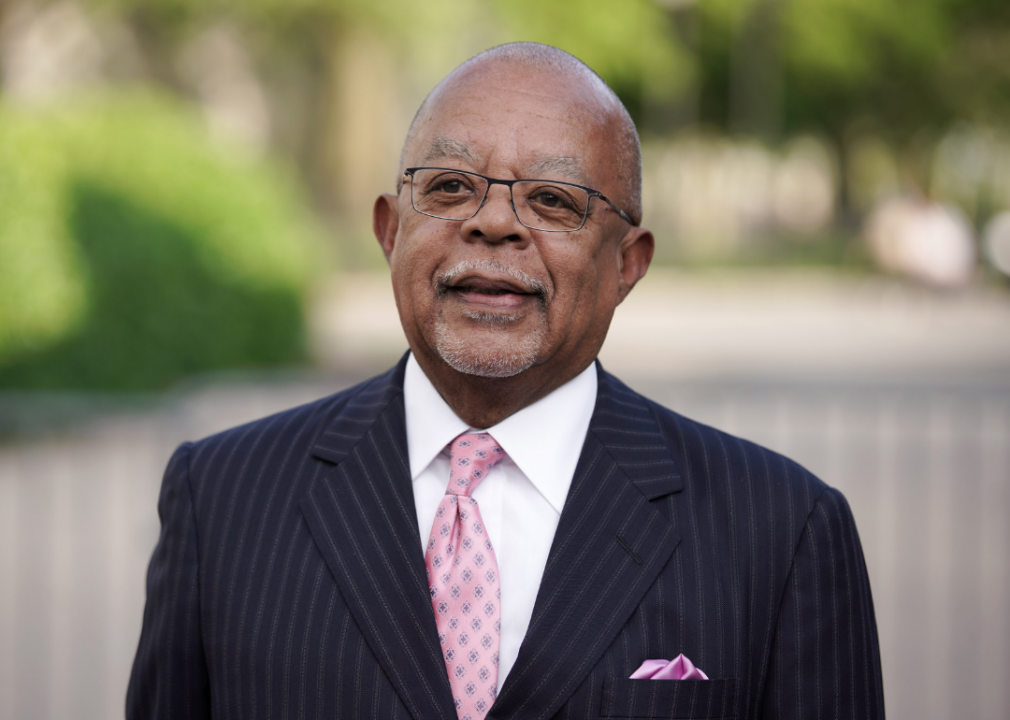
Jemal Countess // Getty Images
Henry Louis Gates Jr.’s ‘America Beyond the Color Line’
Harvard professor and intellectual Henry Louis Gates Jr. spoke to the Commonwealth Club of California in 2004 about traveling all over the country to talk to Black people about their experiences, especially with racial equality. His interviews took place everywhere, from “Ebony Towers” and “Black Hollywood” to the inner city and all-Black communities in the South.
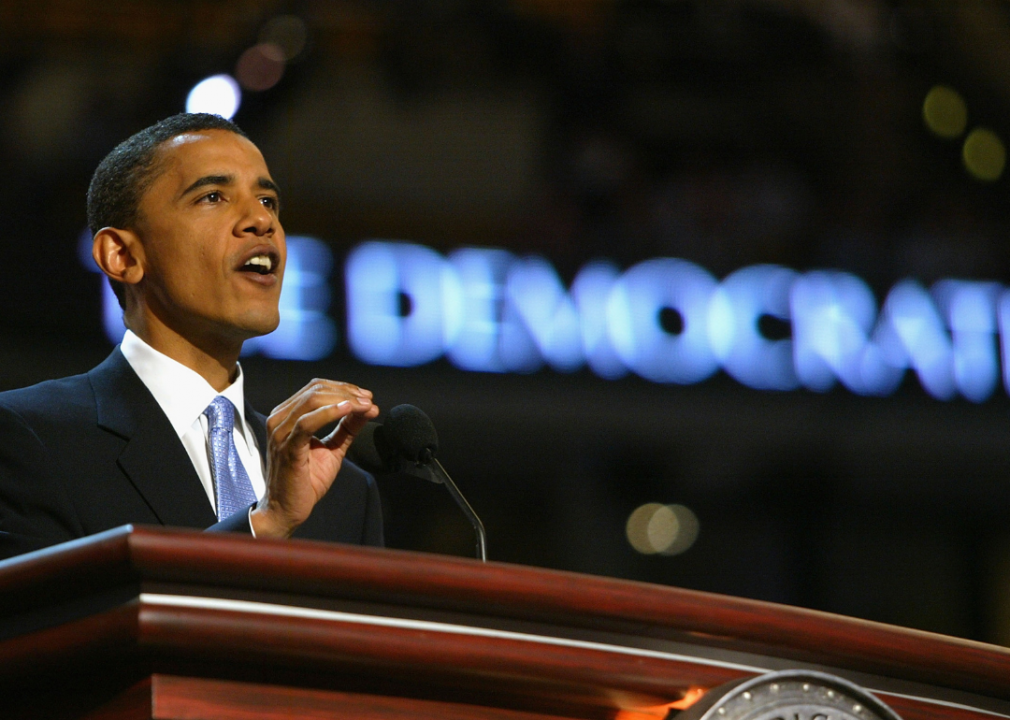
Spencer Platt // Getty Images
Barack Obama’s 2004 Democratic National Convention speech
Before he was even elected as a senator, Barack Obama spoke at the Democratic National Convention in 2004 from the perspective of the child of parents who deemed him blessed to be in America. His speech considered the progress the country has made, but also how far we have to go.
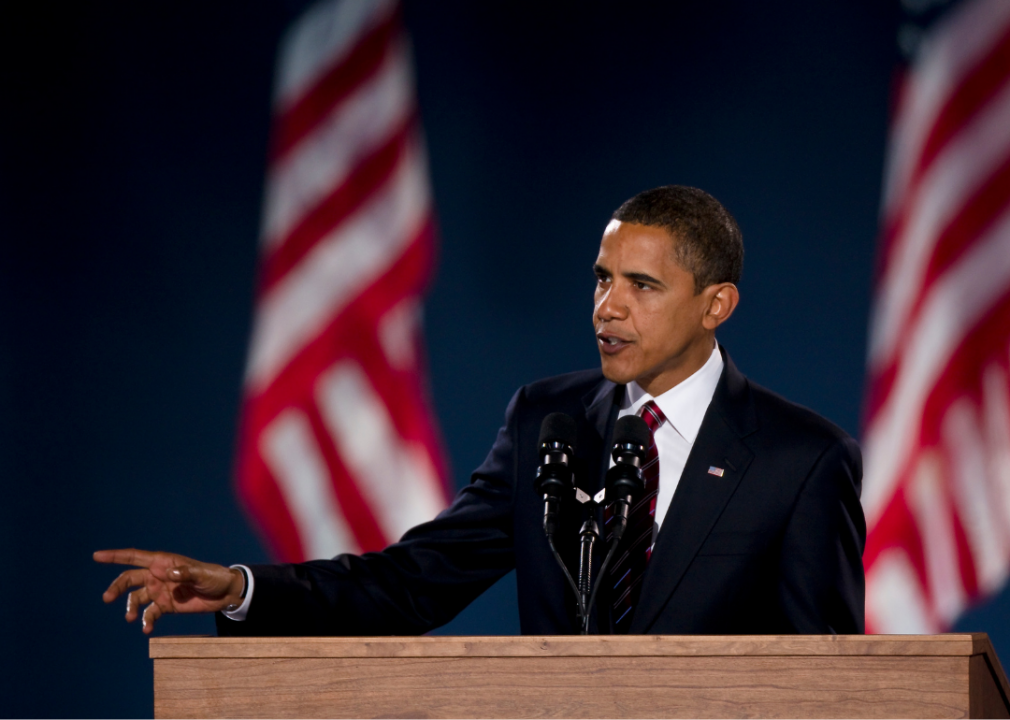
Ralf-Finn Hestoft // Getty Images
Barack Obama’s ‘A More Perfect Union’
When former President Barack Obama was still a candidate in early 2008, he addressed America and its legacy of racism, talking about the original sin of slavery, and how the answer was already embedded in the Constitution “that promised its people liberty, and justice, and a union that could be and should be perfected over time.” Continuing, he talked about how protests “on the streets and in the courts” have moved us closer to a “more just, more equal, more free, more caring, and more prosperous America.”
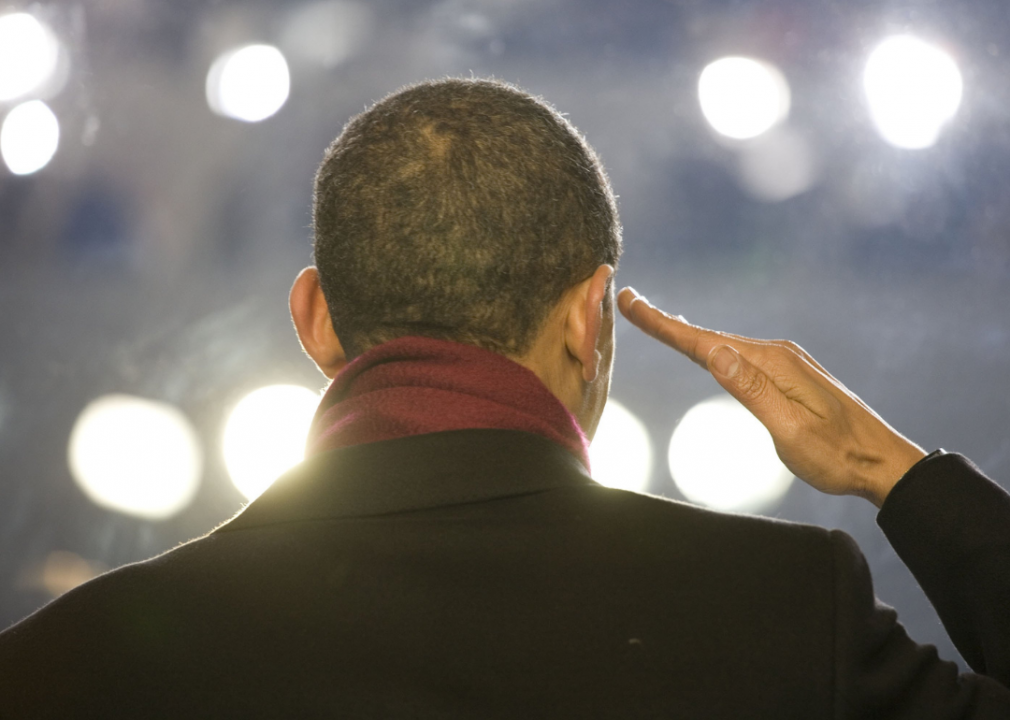
David Hume Kennerly // Getty Images
Barack Obama’s 2009 Inaugural Address
When President Barack Obama was inaugurated in 2009, his speech recognized the diversity of the American people with respect to race, religion, and more. His speech held out hope “that the old hatreds shall someday pass” and “that the lines of tribe shall soon dissolve.” The year 2020 has shown us we haven’t reached that goal yet, but Obama’s speech promised that one day we will.
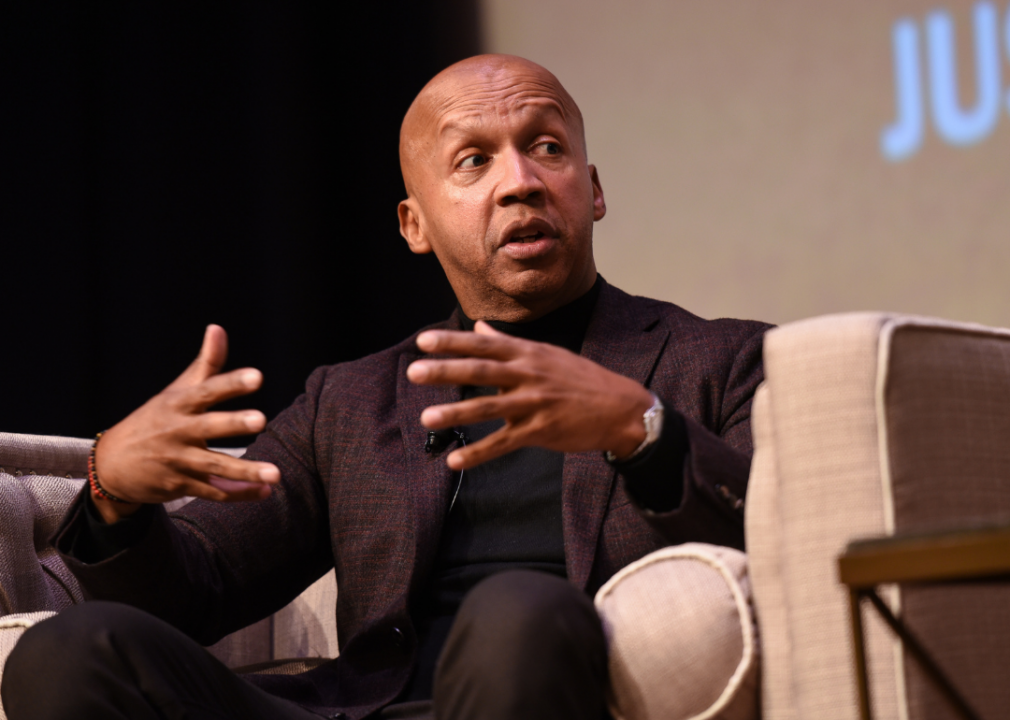
Jared Siskin // Getty Images
Bryan Stevenson’s ‘We Need to Talk About an Injustice’
Bryan Stevenson is a human rights lawyer who founded the Equal Justice Institute and its Legacy Museum, which educates people about the direct path from slavery to mass incarceration. In this 2012 TED Talk, he talks about injustices and the impact of the death penalty in a world where 10% of those on death row are ultimately exonerated.
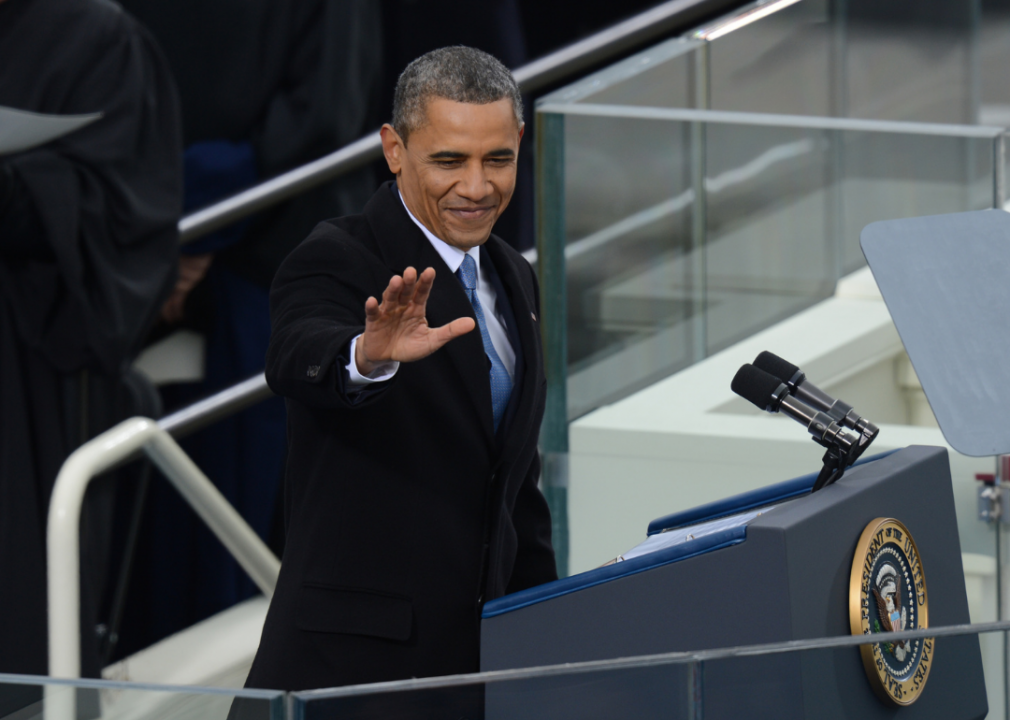
Saul Loeb/AFP // Getty Images
Barack Obama’s 2013 Inaugural Address
President Barack Obama took the opportunity of his second inauguration in 2013 to draw parallels between Black and women’s rights, fought for in Selma and Seneca Falls, to the Stonewall riots that were pivotal for the gay rights movement. His commitment to that cause was showcased in his comment that “our journey is not complete until our gay brothers and sisters are treated like anyone else under the law,” setting the stage for arguments to declare the Defense of Marriage Act unconstitutional.
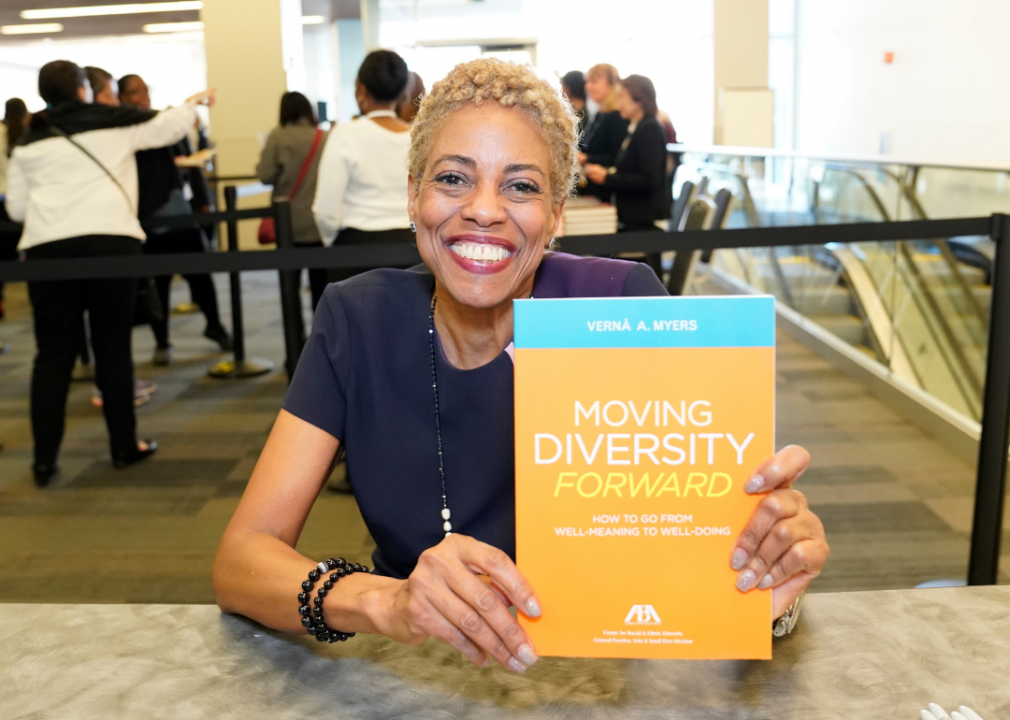
Marla Aufmuth // Getty Images
Vernā Myers’ ‘How to Overcome Our Biases? Walk Boldly Toward Them’
In her 2014 TEDx Talk, diversity consultant Vernā Myers advised, “Stop trying to be good people, we need real people. Don’t even think about colorblindness.”
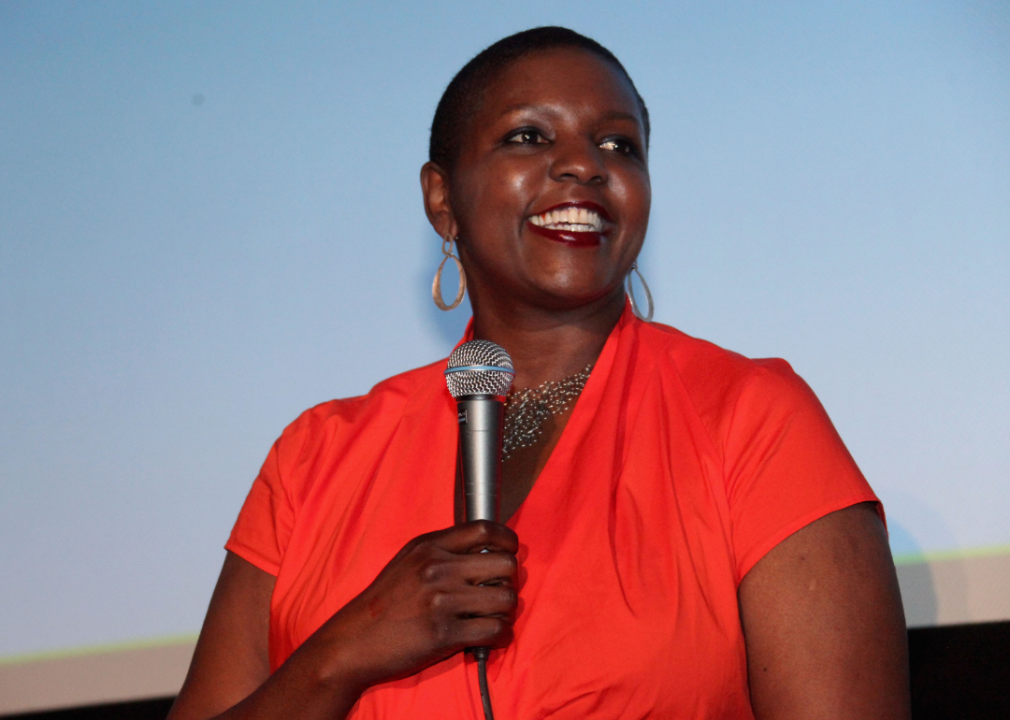
Tommaso Boddi/WireImage // Getty Images
Yoruba Richen’s ‘What the Gay Rights Movement Learned From the Civil Rights Movement’
Filmmaker Yoruba Richen, who is a part of both the Black and LGBTQ+ community, spoke in this 2014 TED Talk about her frustration concerning the supposed conflict between the two worlds, but realized that there was really more intersection. She explored how the LGBTQ+ community successfully used strategies and tactics used by the Black community in their own civil rights efforts.
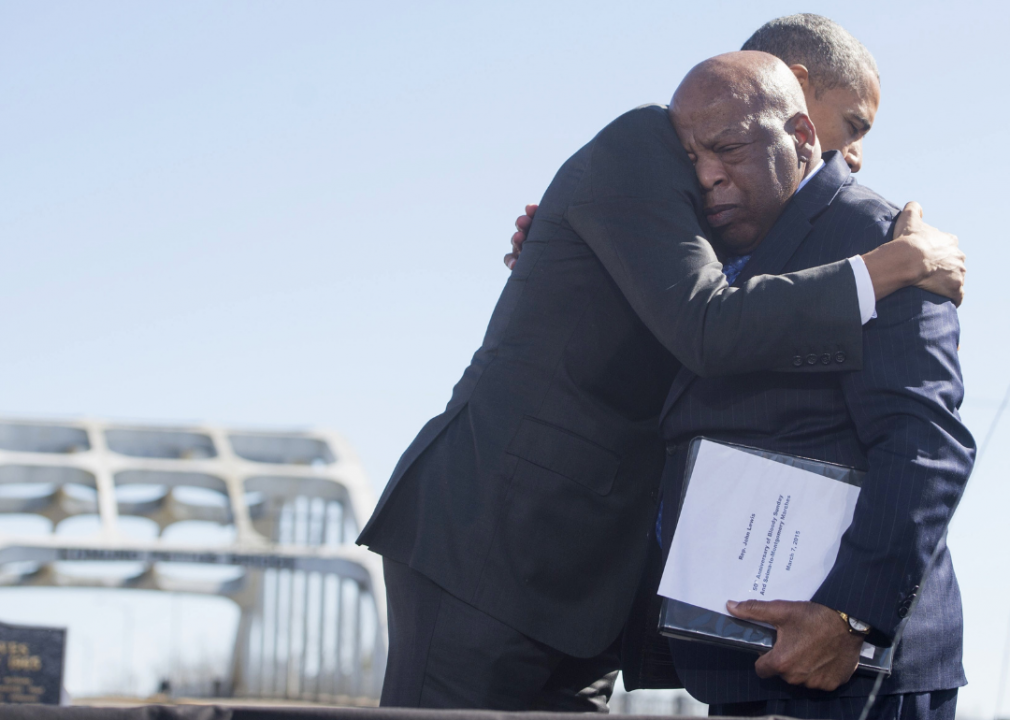
Saul Loeb/AFP // Getty Images
John Lewis’ speech on 50th Anniversary of Bloody Sunday
Fifty years after the Selma march that became known as Bloody Sunday because of the police abuse that almost killed him and other marchers, John Lewis returned to the Edmund Pettus Bridge in 2015. Lewis reminded everyone, “We must use this moment to recommit ourselves to do all we can to finish the work. There is still work left to be done. Get out there and push and pull until we redeem the soul of America.”
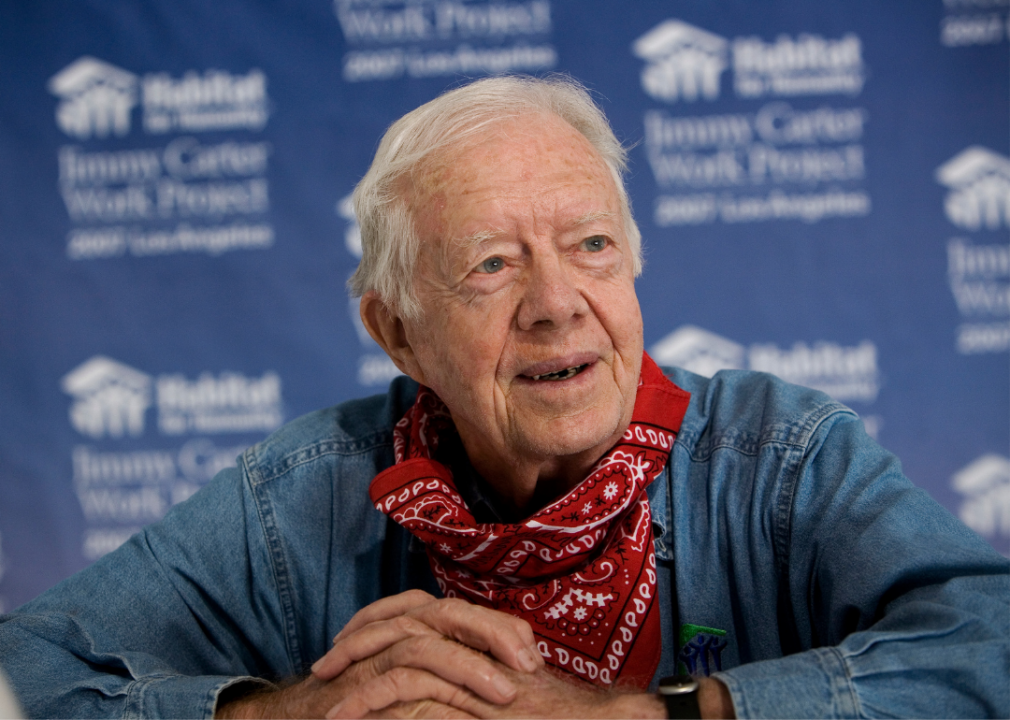
Ted Soqui/AFP // Getty Images
Jimmy Carter’s ‘Why I Believe the Mistreatment of Women is the Number One Human Rights Abuse’
Former President of the United States Jimmy Carter posited in this 2015 TEDWomen Talk that abuse of women and girls is the major human rights abuse of our time, resulting from various reasons, including misinterpretation of scriptures and “men [who] don’t give a damn.” He also outlined in his talk a number of abuses that are commonplace across the world. His Carter Center is committed to protecting and advancing human rights.
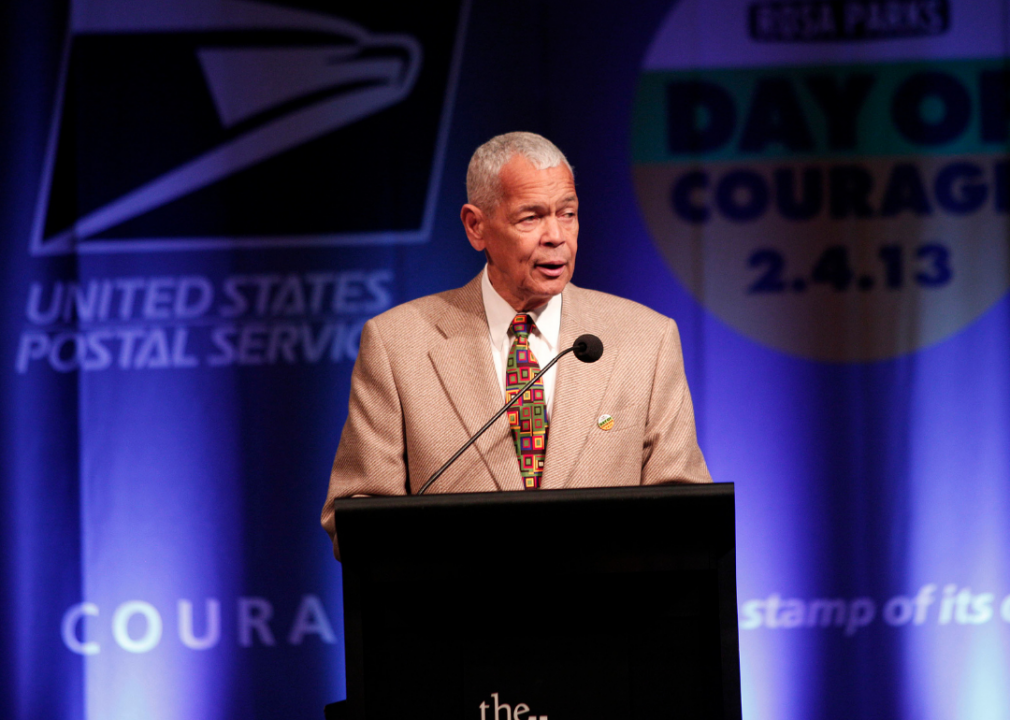
Bill Pugliano // Getty Images
Julian Bond’s ‘Declaration: We Must Practice Dissent’
From the Student Nonviolent Coordinating Committee to the Southern Poverty Law Center and NAACP, Julian Bond has been a part of some of the major organizations of the civil rights movement. In his final speech in 2015, he continued to advocate for protest and dissent.
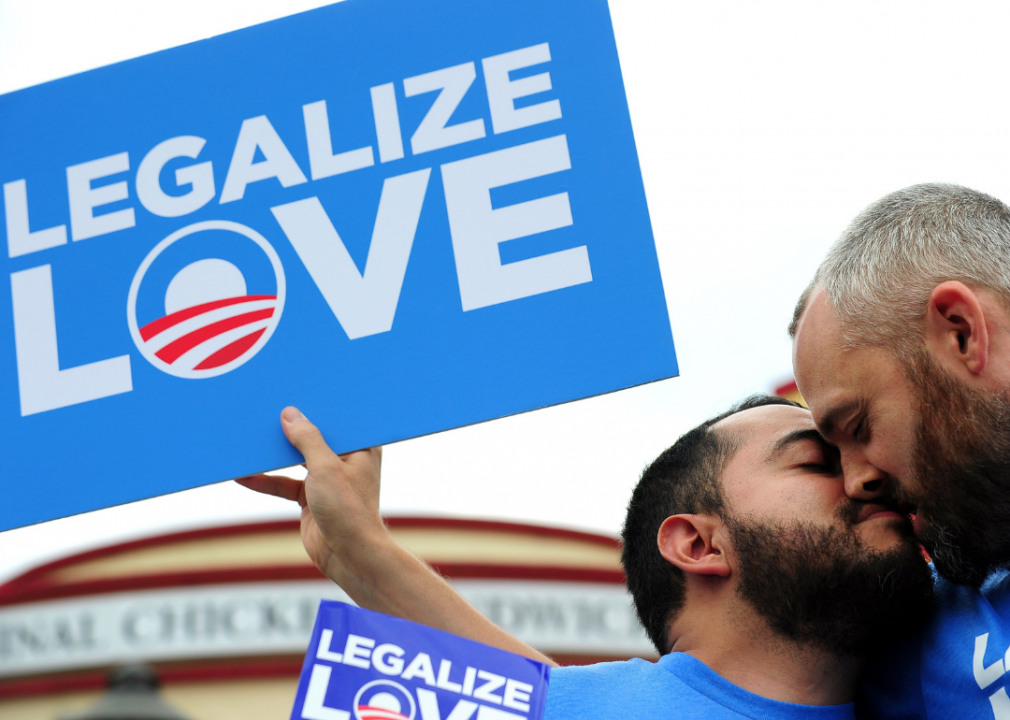
Frederic J. Brown/AFP // Getty Images
Barack Obama’s ‘Love is Love’
More than two years after advocating for marriage equality in his second inauguration, Barack Obama celebrated the downfall of part of the Defense of Marriage Act in 2015 with a speech in which he declared, “Love is love.”
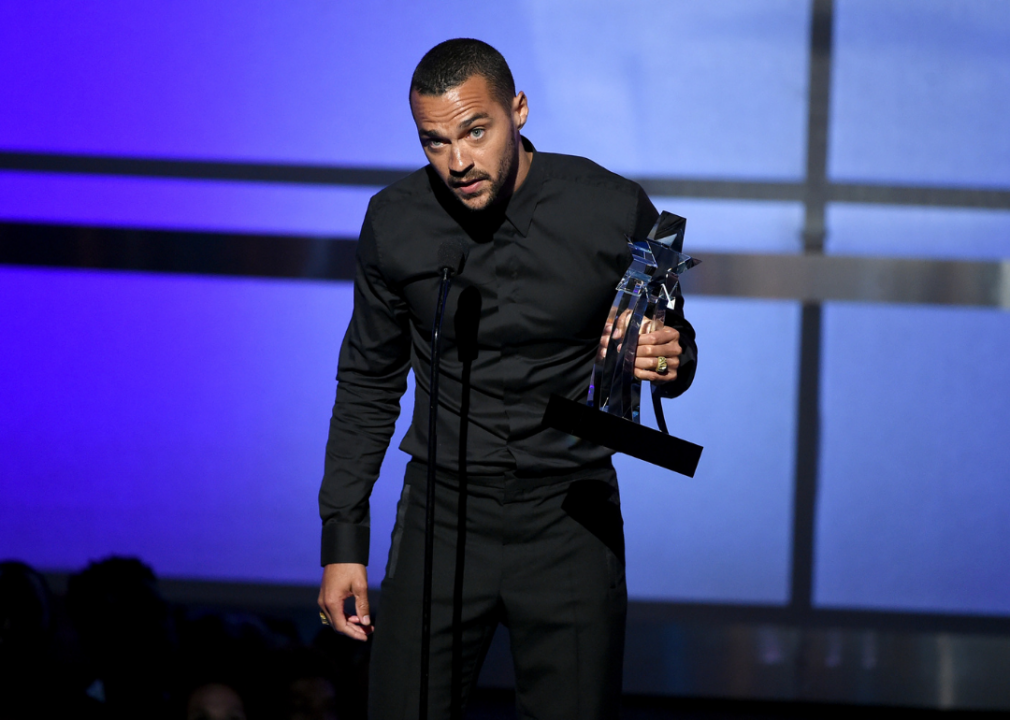
Kevin Winter/BET // Getty Images
Jesse Williams’ 2016 BET Awards speech
Actor Jesse Williams’ speech at the 2016 BET Awards remembered the many Black people who were killed by police at the time, expressing, “We know that police somehow managed to deescalate, disarm, and not kill white people every day, so what’s gonna happen is we are gonna have equal rights and justice in our own country, or we will restructure their function and ours.” Mirroring the demands of other civil rights activists for action now, not later, he noted that “the hereafter is a hustle, we want it now.
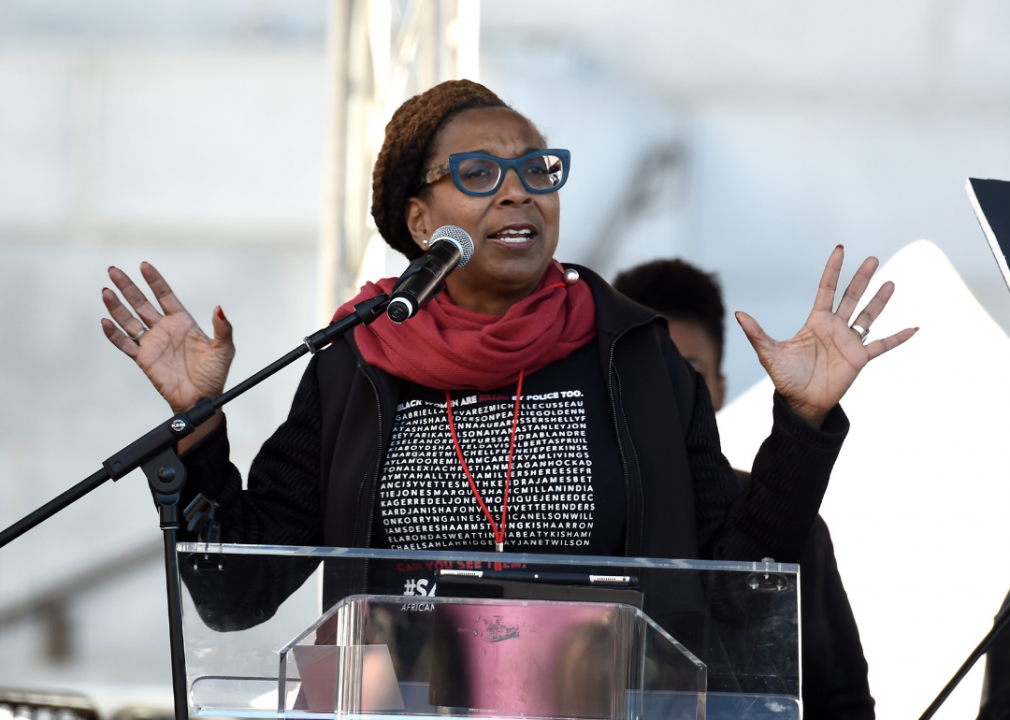
Amanda Edwards // Getty Images
Kimberlé Crenshaw’s ‘The Urgency of Intersectionality’
Kimberlé Crenshaw started her 2016 TEDWomen talk commemorating the names of people killed at the time by the hands of police, conducting an experiment that demonstrates that the women in that group are relatively unknown. Discrimination against Black women “feels like injustice squared,” asserted Crenshaw, who later invited the audience to use #SayHerName to bear witness to these women.
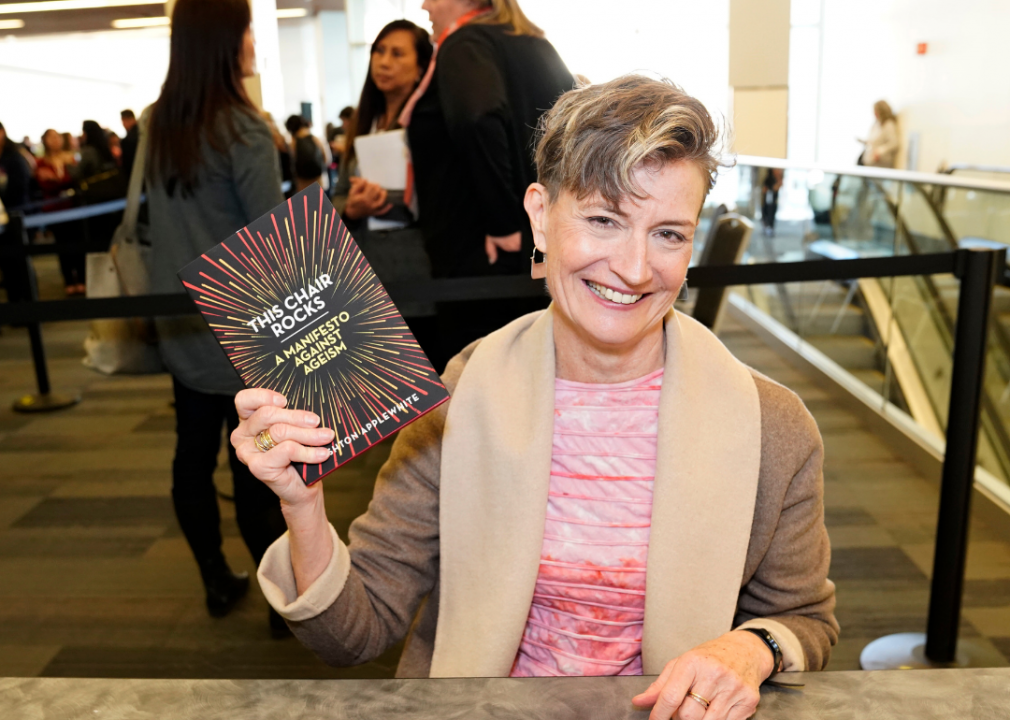
Marla Aufmuth // Getty Images
Ashton Applewhite’s ‘Let’s End Ageism’
One type of discrimination that’s less considered in the civil rights realm is ageism. In this 2017 TED Talk, Ashton Applewhite called it the “last socially-acceptable prejudice.” Many fear getting old, even though the stats show that reality doesn’t match our fears. And prejudice of any type divides us. She implored us to get off the “hamster wheel of age denial.”
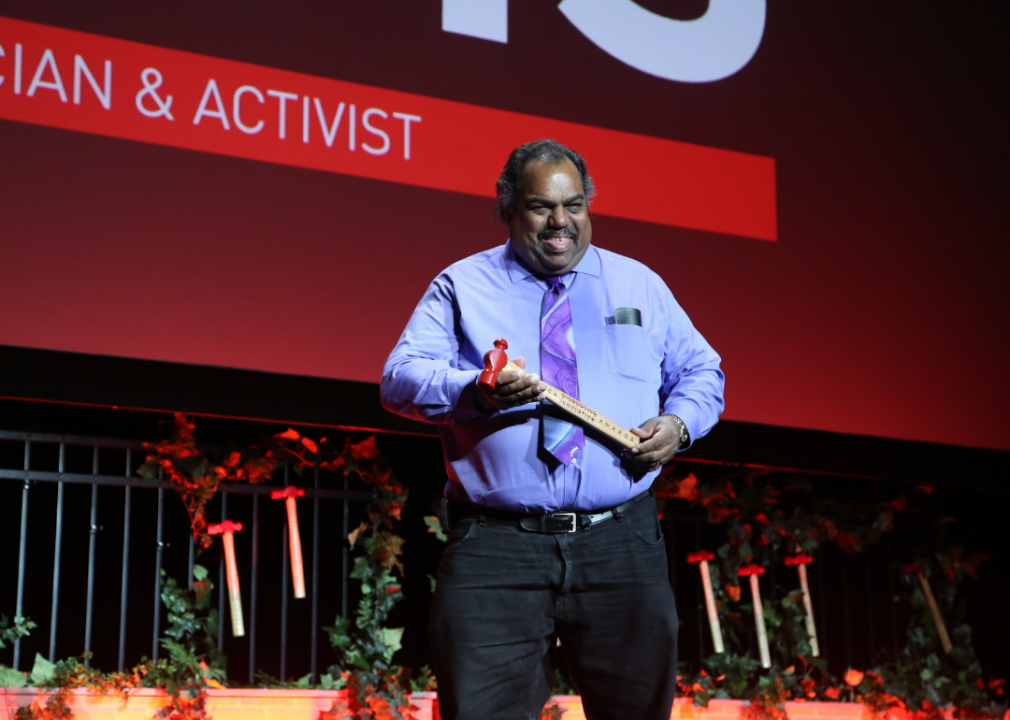
Rob Kim // Getty Images
Daryl Davis’ ‘Why I, As a Black Man, Attend KKK Rallies’
Black musician Daryl Davis talked about the unusual evolution of a friendship between himself and a Ku Klux Klan Grand Dragon in his 2017 TEDx Talk. His takeaway from the experience: “Hate stems from fear of the unknown. Take the time to sit down and talk with your adversaries. You’ll learn something; they’ll learn something.” Amid his friendship, Davis revealed the Grand Dragon actually left the Klan.
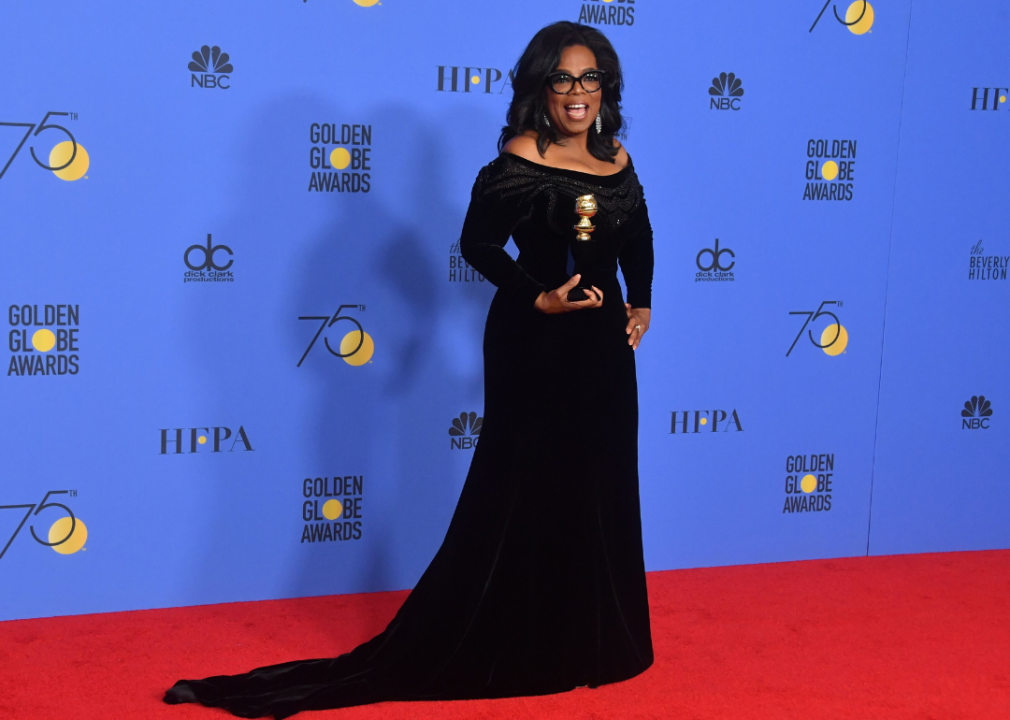
Frederic J. Brown/AFP // Getty Images
Oprah Winfrey’s 2018 Golden Globes speech
The #MeToo movement played a prominent part in Oprah Winfrey’s acceptance speech as she received the Cecil B. DeMille Award at the 2018 Golden Globes. Winfrey gave gratitude to the women who survived abuse and assault because they had “children to feed and bills to pay and dreams to pursue.”
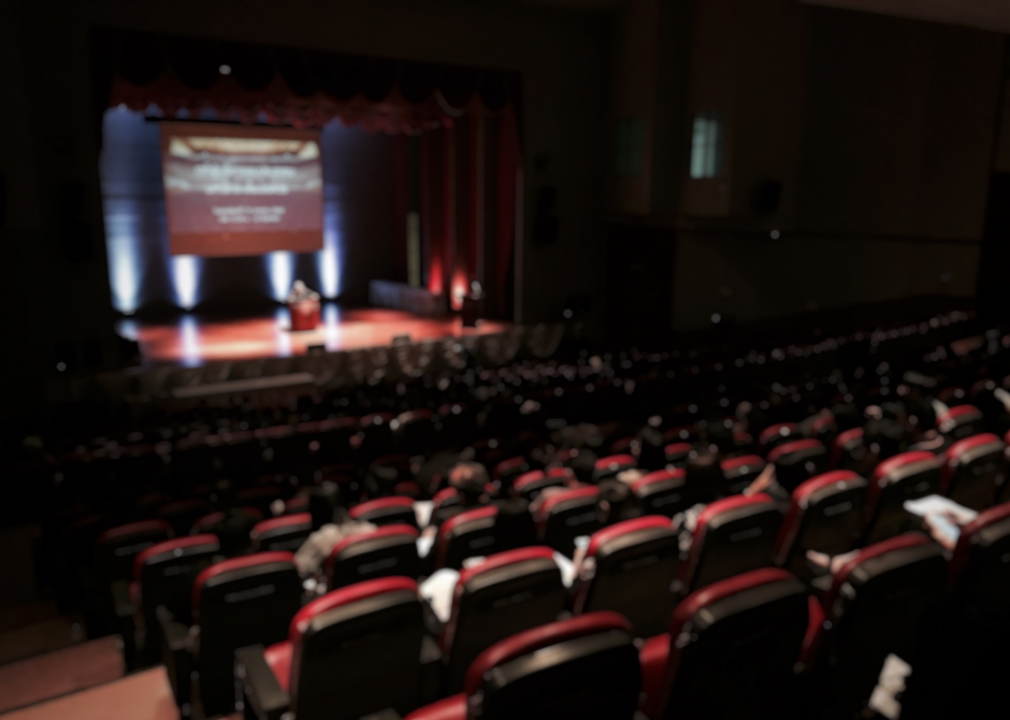
Siyanight // Shutterstock
Melinda Epler’s ‘3 Ways to Be a Better Ally in the Workplace’
Civil rights efforts need the collaboration and contribution of allies. Oftentimes, it’s not an employee who is failing, but the culture, due to microaggressions and other barriers. In this 2018 TED Salon talk, Melinda Epler shared specific ways to support those facing discrimination.
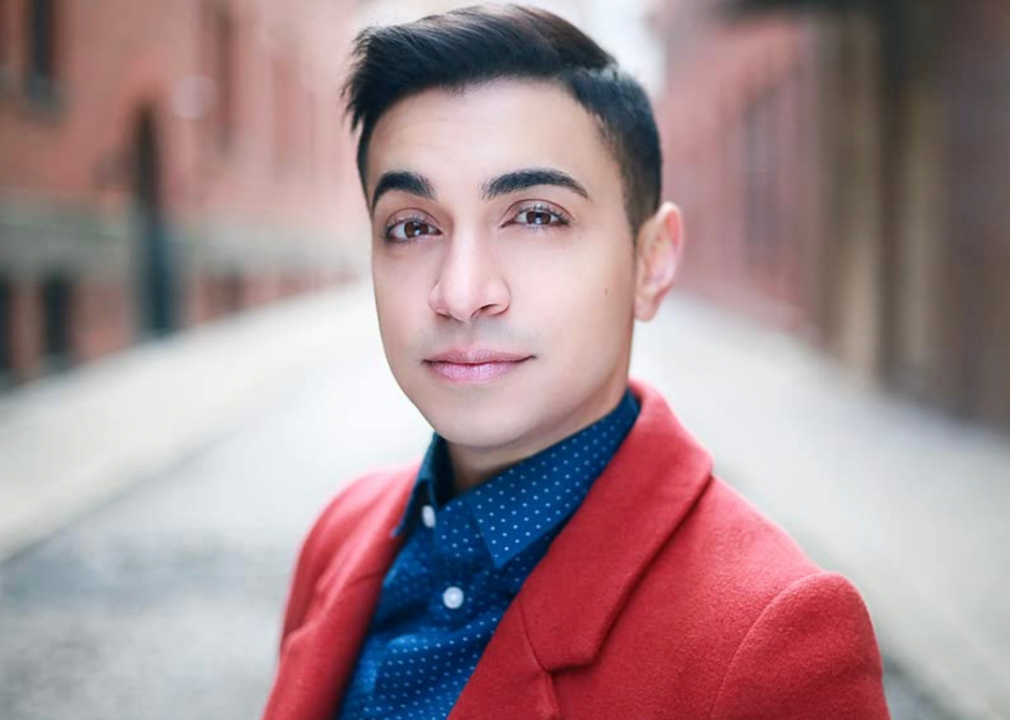
Samy Nour Younes
Samy Nour Younes’ ‘A Short History of Trans People’s Long Fight for Equality’
This 2018 TED Talk about the centuries-old history of trans people noted that their existence is not new, and explored both the struggles and triumphs of the community. The topic was and still is a matter of urgency—more than 50 transgender and gender-nonconforming people, mostly Black and Latinx women, were killed in 2021 alone.
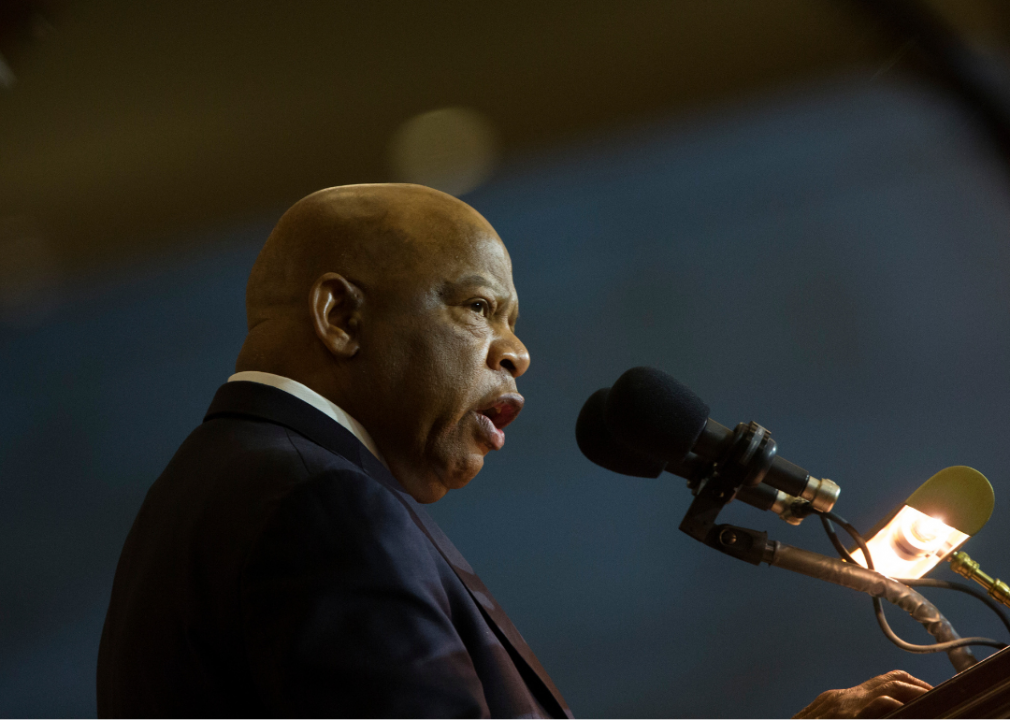
Drew Angerer // Getty Images
John Lewis’ ‘Good Trouble’
Returning in 2020 to the Edmund Pettus Bridge, where police abused him 55 years earlier on Bloody Sunday, Georgia Rep. John Lewis implored to the crowd: “Go out there, speak up, speak out. Get in the way. Get in good trouble, necessary trouble, and help redeem the soul of America.” Lewis himself had gotten into plenty of “good trouble” over the years, being arrested more than 40 times as the result of civil disobedience during his lifelong fight for civil rights.
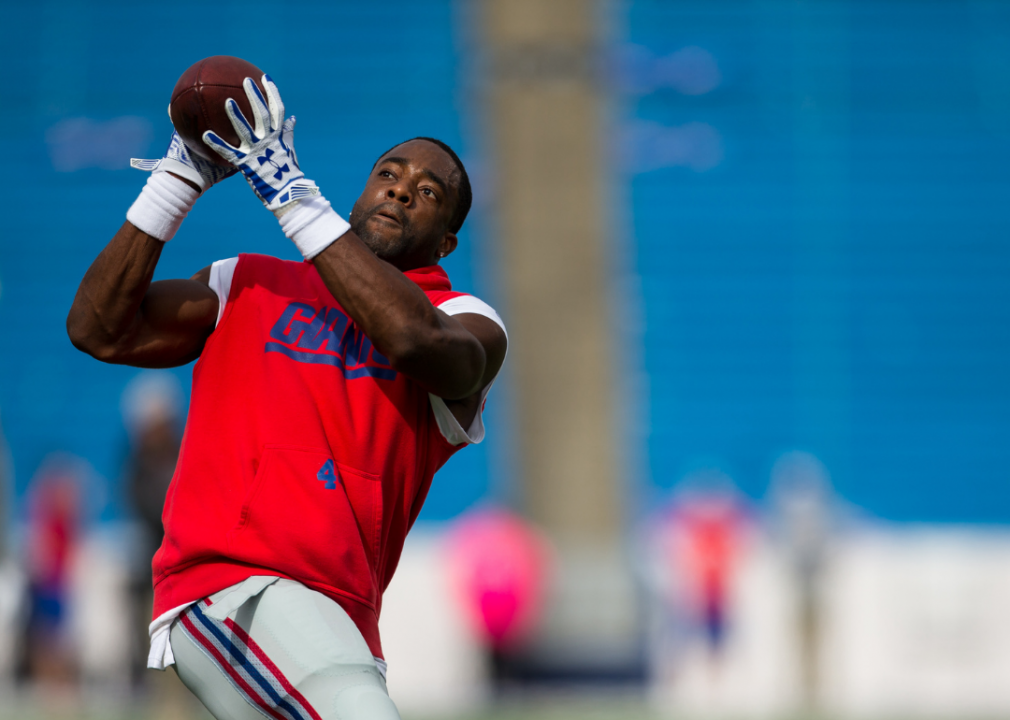
Brett Carlsen // Getty Images
Andre Williams’ 2020 police brutality speech
At a 2020 Black Lives Matter march, NFL star Andre Williams reminded others, “Guess what, in the morning we still wake up Black, and we cannot continue to allow the people to oppress the African American community.” He begged them to “be the voice for Black people.”
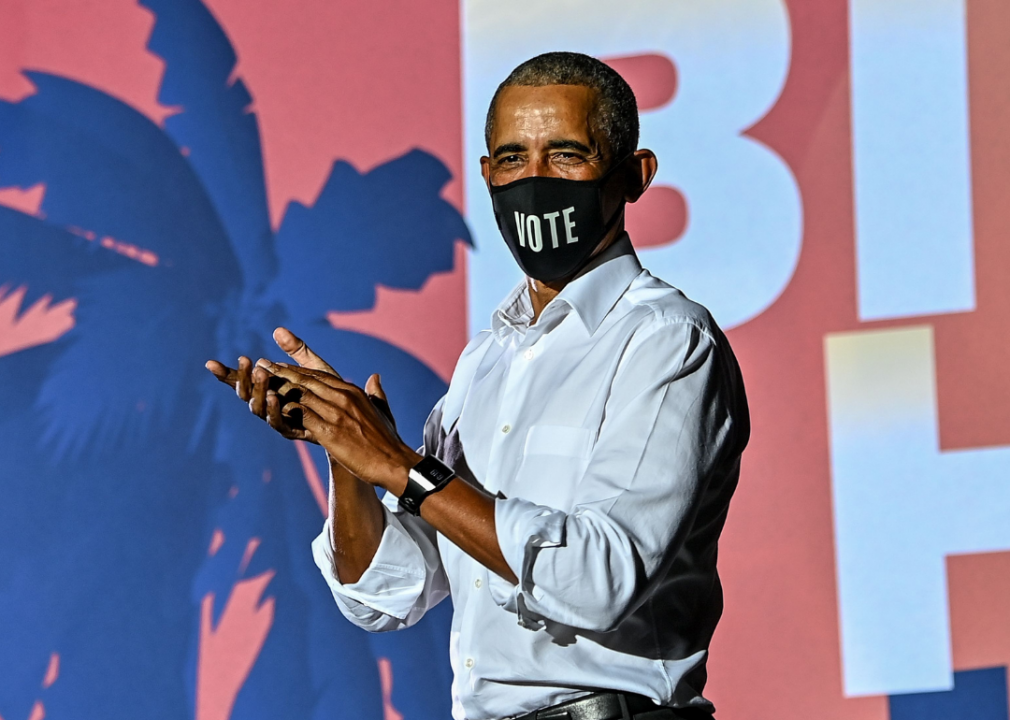
Chandan Khanna/AFP // Getty Images
Barack Obama’s ‘Reimagining Policing in the Wake of Continued Police Violence’
In his speech in response to the wave of police violence in 2020, former President Barack Obama stated: “I’ve been hearing a little bit of chatter on the internet about voting versus protest, politics, and participation versus civil disobedience and direct action. This is not either/or, this is both/and, to bring about real change. Because they kept marching, America changed. We’ll get back up, that’s how movement happens, that’s how history bends.”
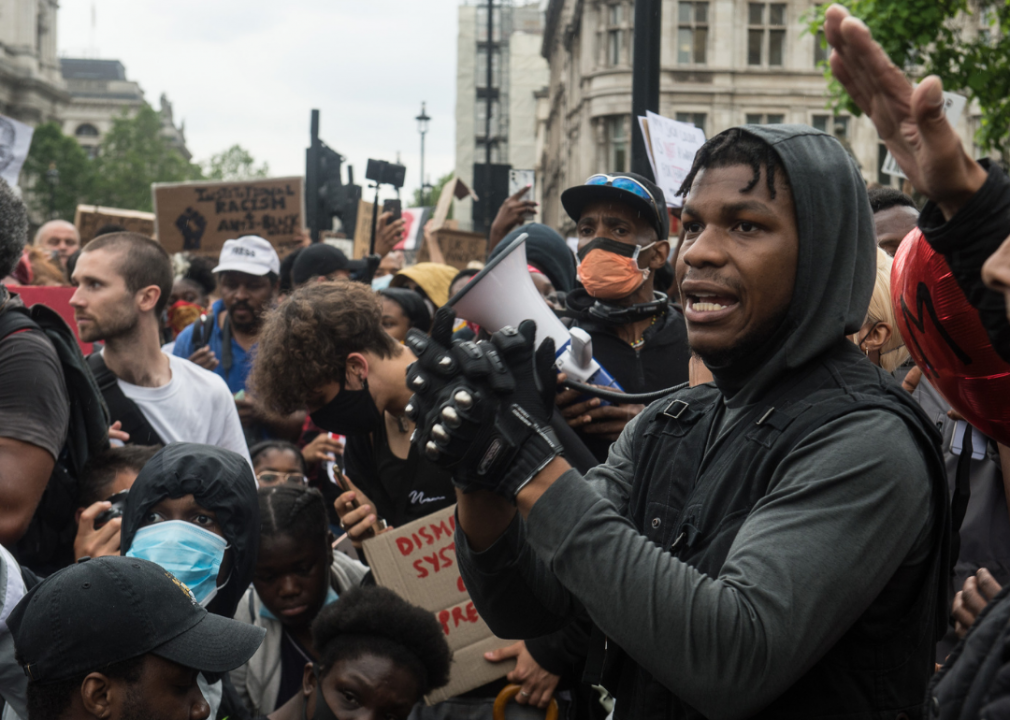
Guy Smallman // Getty Images
John Boyega’s 2020 Black Lives Matter protest speech
British actor John Boyega spoke out at a 2020 Black Lives Matter protest in London, prefacing, “I don’t know if I’m going to have a career after this.” He talked about his own experience and those of others, adding, “Every Black person understands and realizes the first time you were reminded that you were Black. I need you to understand how painful it is to be reminded every day that your race means nothing.”
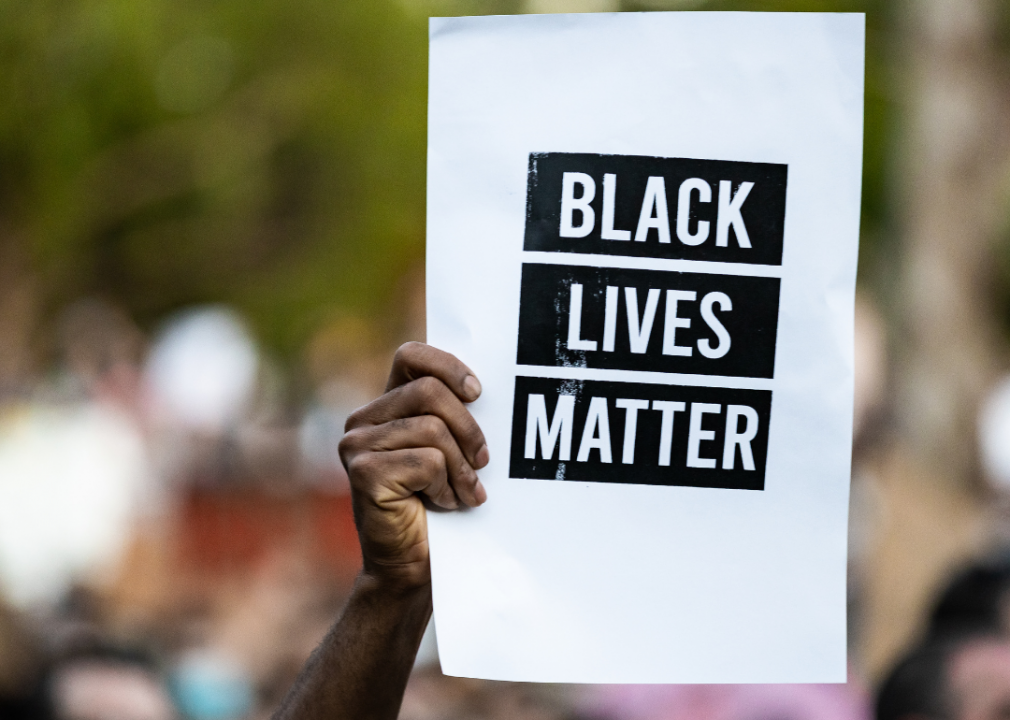
Amir Aziz // Shutterstock
Playon Patrick’s ‘2020 Quarantine Killings’
Playon Patrick was part of the Obama Foundation Conversation with former President Barack Obama about reimagining policing in 2020. His spoken word performance talked about the experience of Black boys in this country. “We are early graves before we are anything else,” Patrick said. “Always conflicted between being Black and being people. I wish God could give us a choice.”
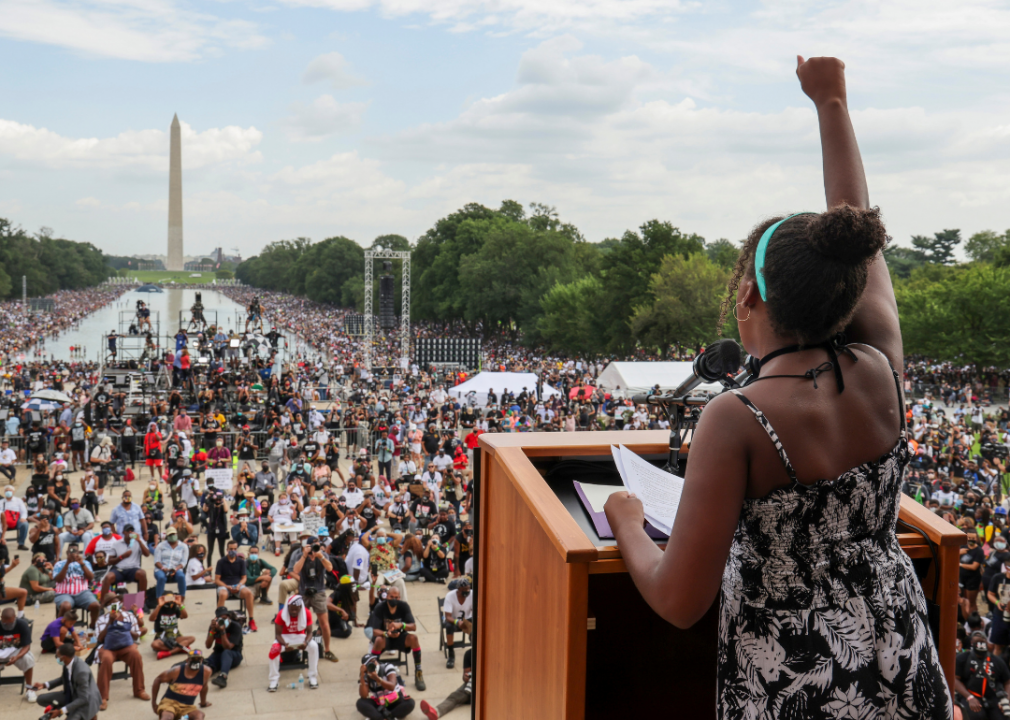
Pool // Getty Images
Yolanda Renee King’s 2020 March on Washington speech
The civil rights leader’s granddaughter, Yolanda Renee King, channeled MLK in this powerful speech at the 2020 March on Washington. She noted that “great challenges produce great leaders: We have mastered the selfie and Tik Toks, now we must master ourselves.” She proclaimed that her generation was going to be “the one that moves from me to we—we are going to be the generation that dismantles systemic racism once and for all.”
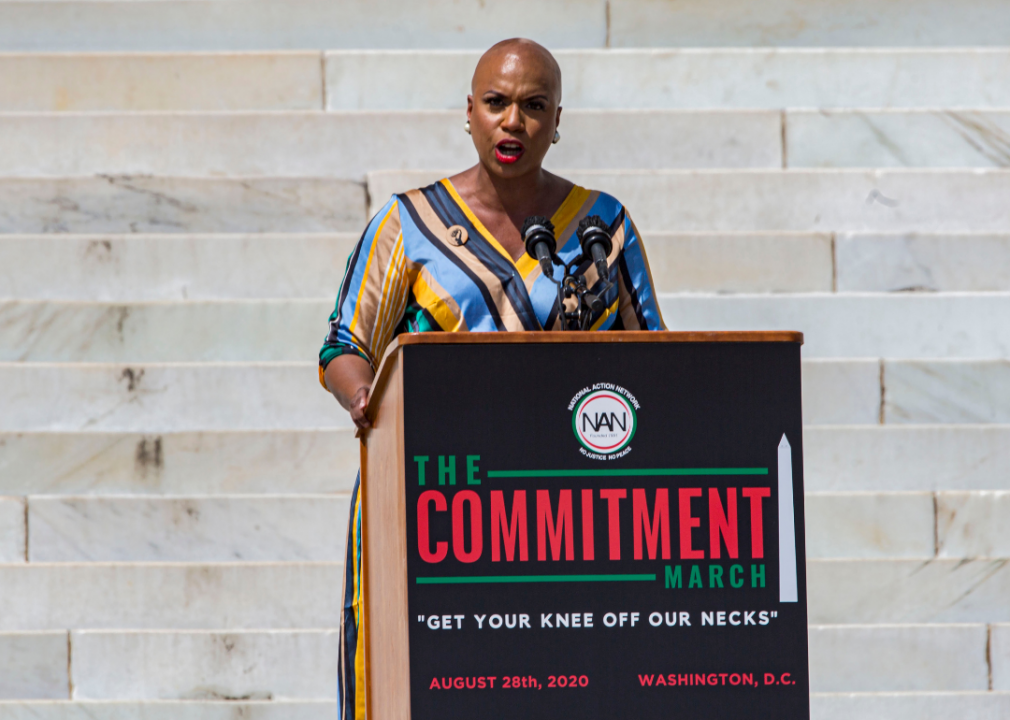
Daniel Knighton // Getty Images
Ayanna Pressley’s 2020 March on Washington speech
Massachusetts Rep. Ayanna Pressley “let it play” at the 2020 March on Washington, reminding us, “Another world is possible. Yes, it is possible to legislate justice and accountability, people over profits, joy over trauma, freedom over fear. Yes, it is possible to write budgets that actually value Black lives. If it feels unfamiliar, that’s because it has never been done in America.”
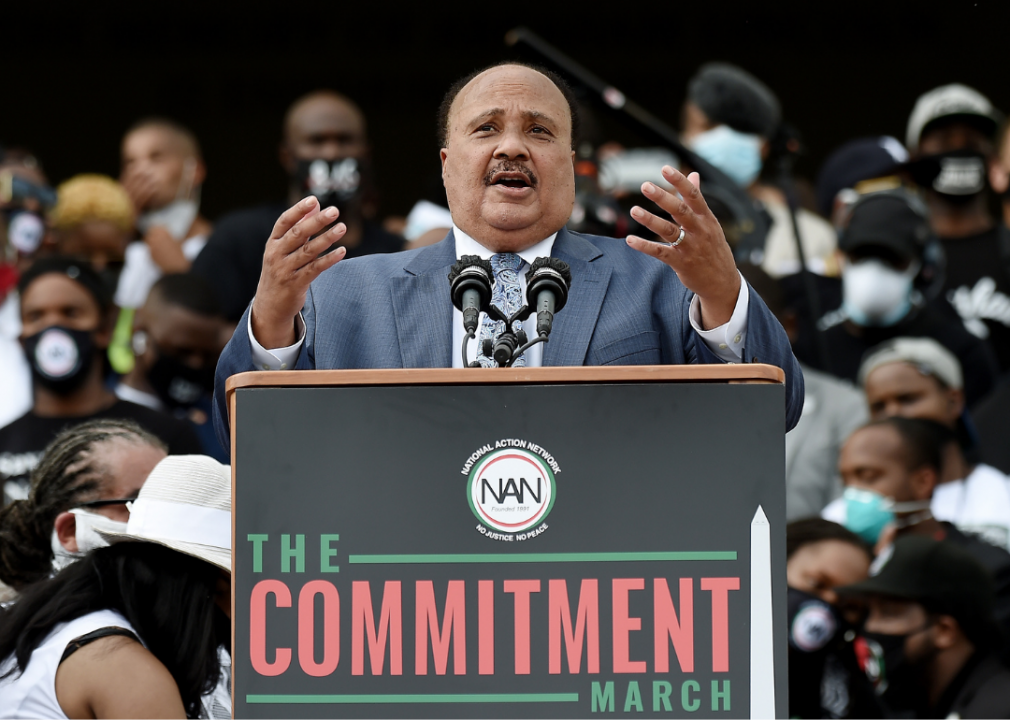
Pool // Getty Images
Martin Luther King III’s 2020 March on Washington speech
The son of the civil rights icon spoke out at the 2020 March on Washington, in which he talked about America’s “rocky but righteous journey towards justice” and advocated for “demilitarizing the police, dismantling mass incarceration, and declaring that Black Lives Matter.” Voting was another focus of this speech, as King urged listeners to start “marching to the ballot boxes, and the mailboxes” to defend our freedoms.
You may also like: 25 terms you should know to understand the health care debate